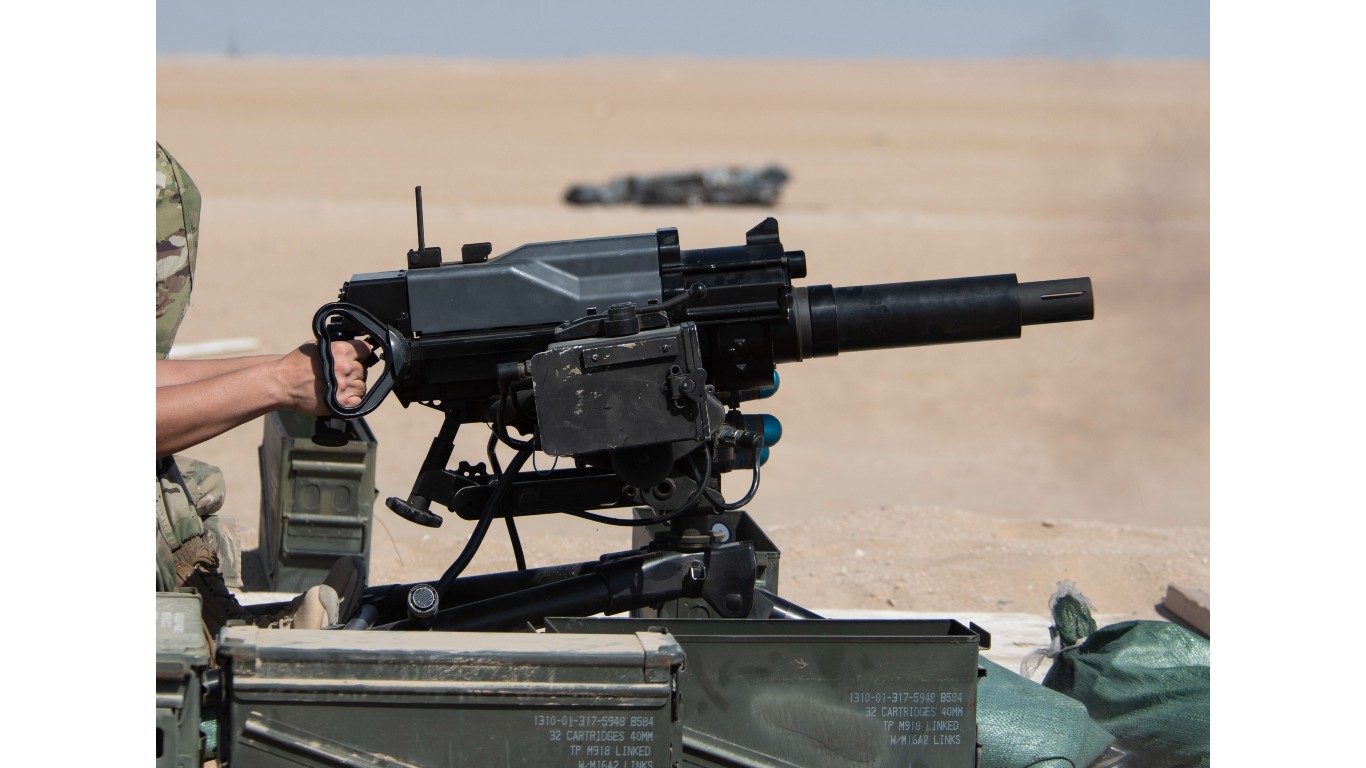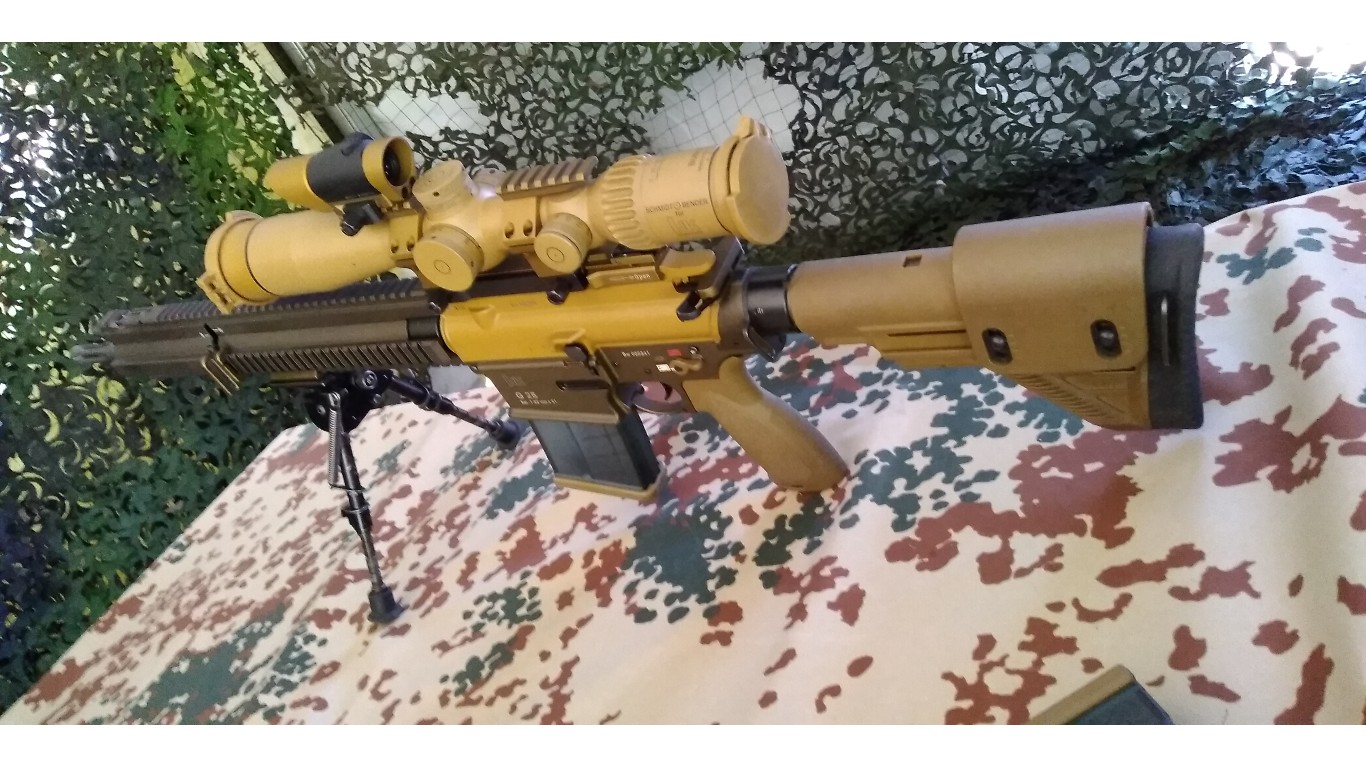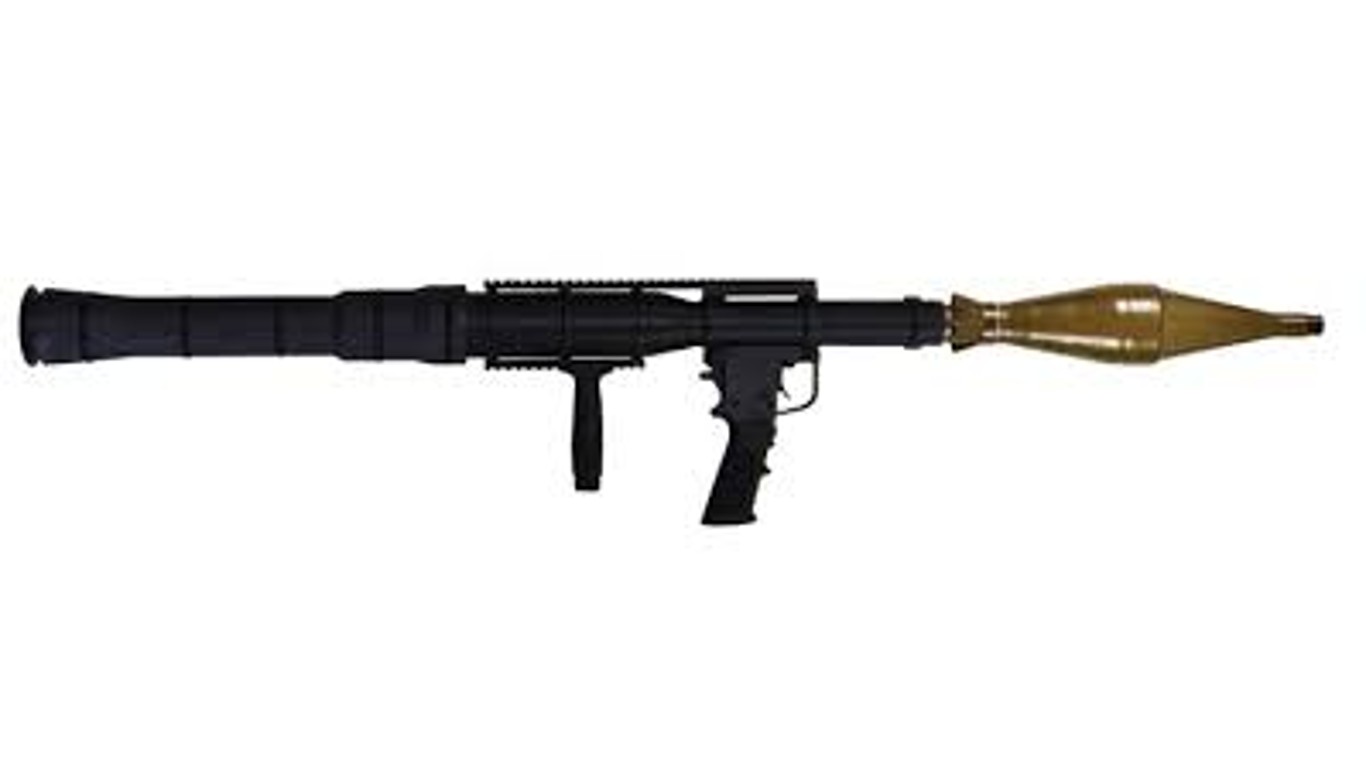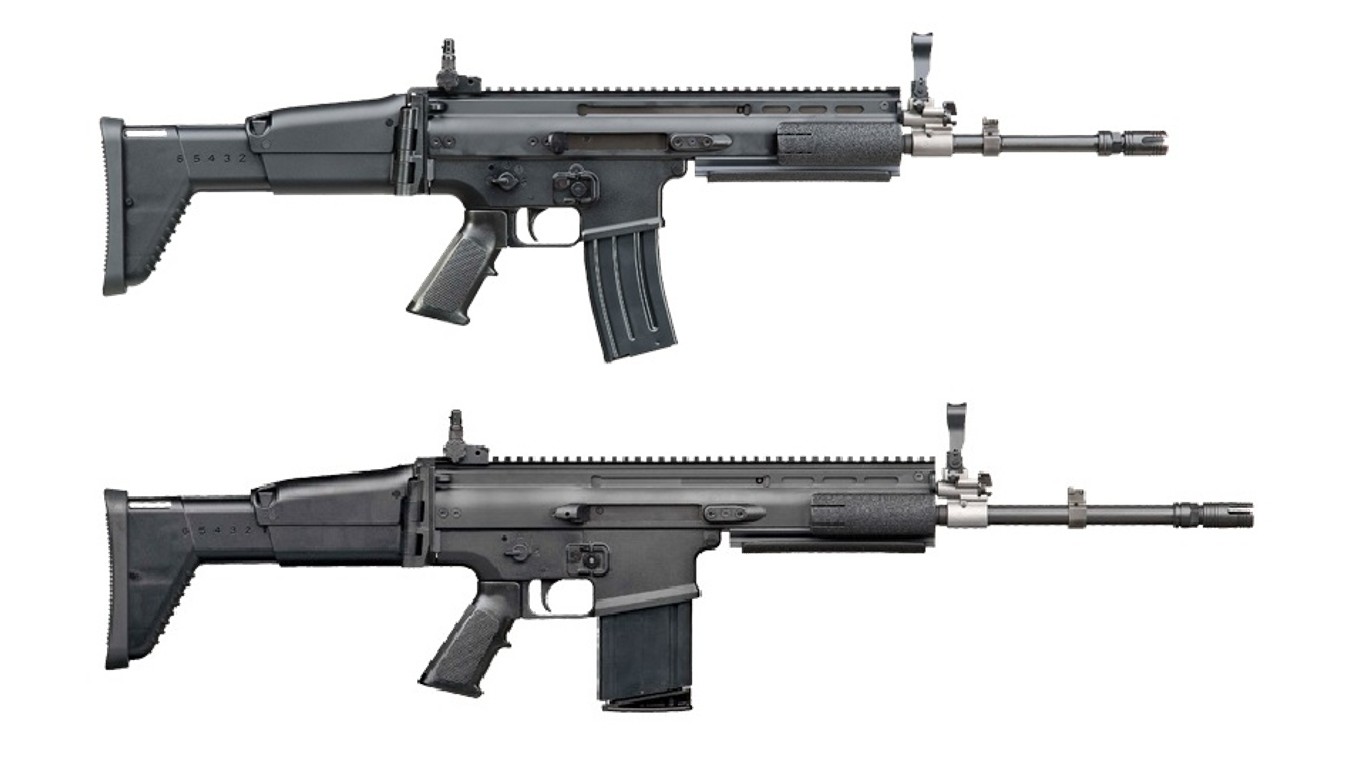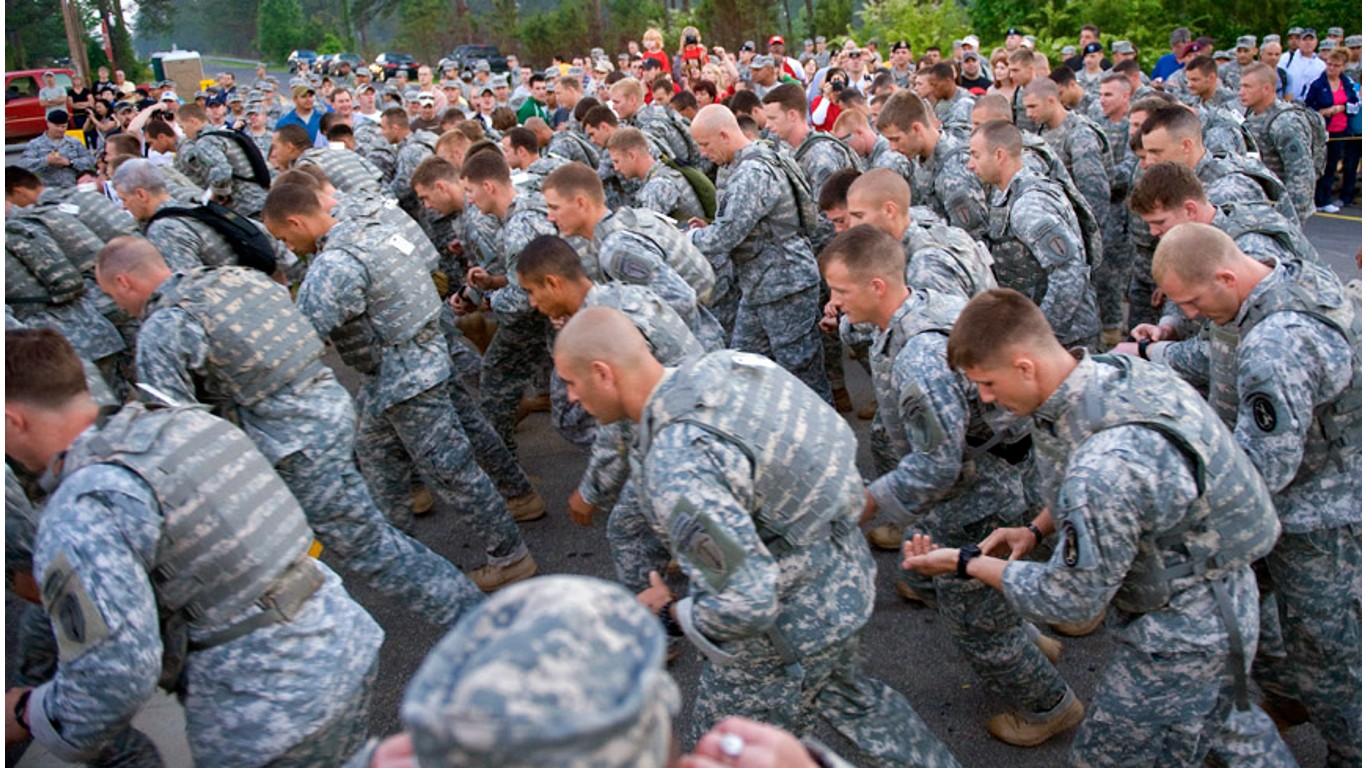
The U.S. Army Rangers were founded during World War II with the idea of creating a unit of soldiers capable of operating autonomously and hitting hard behind enemy lines. Army Rangers have been part of major military operations, including Grenada, Afghanistan, and Iraq. They were instrumental in capturing the Somali warlord during Operation Gothic Serpent, an event later portrayed in the movie “Black Hawk Down.” (Find out how the Army Rangers train. Here are the U.S. military special forces with the most brutal training.)
The U.S Army Rangers Special Forces are known for their multifaceted role within the military framework, often requiring a variety of weapon selections to handle a wide range of operations. Their arsenal is tailored to suit their unique mission and operational needs.
To determine the guns used by U.S. Army Rangers Special Forces, 24/7 Wall St. reviewed online database Military Factory‘s catalog of Army Ranger Weapons. We removed guns that are similar to each other and guns that are believed to no longer be in use by the SEALs. We ranked the guns according to when they entered service. Supplemental data on the type of weapon, maximum effective range, and the caliber of ammunition each gun uses also came from Military Factory.
The Fabrique Nationale FN SCAR, a Special Operations Forces combat assault rifle, is chambered for 7.62mm rounds and serves as a primary assault rifle of the Army Rangers. Its design is focused on modularity and durability in harsh combat environments. The SCAR was chosen by Special Operations Command to replace the Colt M4A1 modular automatic rifle, which had been a long-standing staple of the U.S. Armed Forces. (Here are some of the 35 guns used by Russian Special Forces.)
In sniper warfare, Rangers use specialized rifles, including the McMillan TAC-338, which is capable of providing long-distance precision fire. The ability to take out high-value targets from afar is a key part of Army Rangers’ strategic advantage. The TAC-338 is the weapon of choice for many snipers as it offers precision for anti-personnel operations in a compact footprint for easier transport.
The weapons the Army Rangers use fulfill a variety of roles, and as such, these guns range from compact handguns to assault rifles and specialized sniper weapons. This variety of weaponry allows for preparedness across various mission types.
Here is a look at the guns used by the U.S. Army Rangers Special Forces.
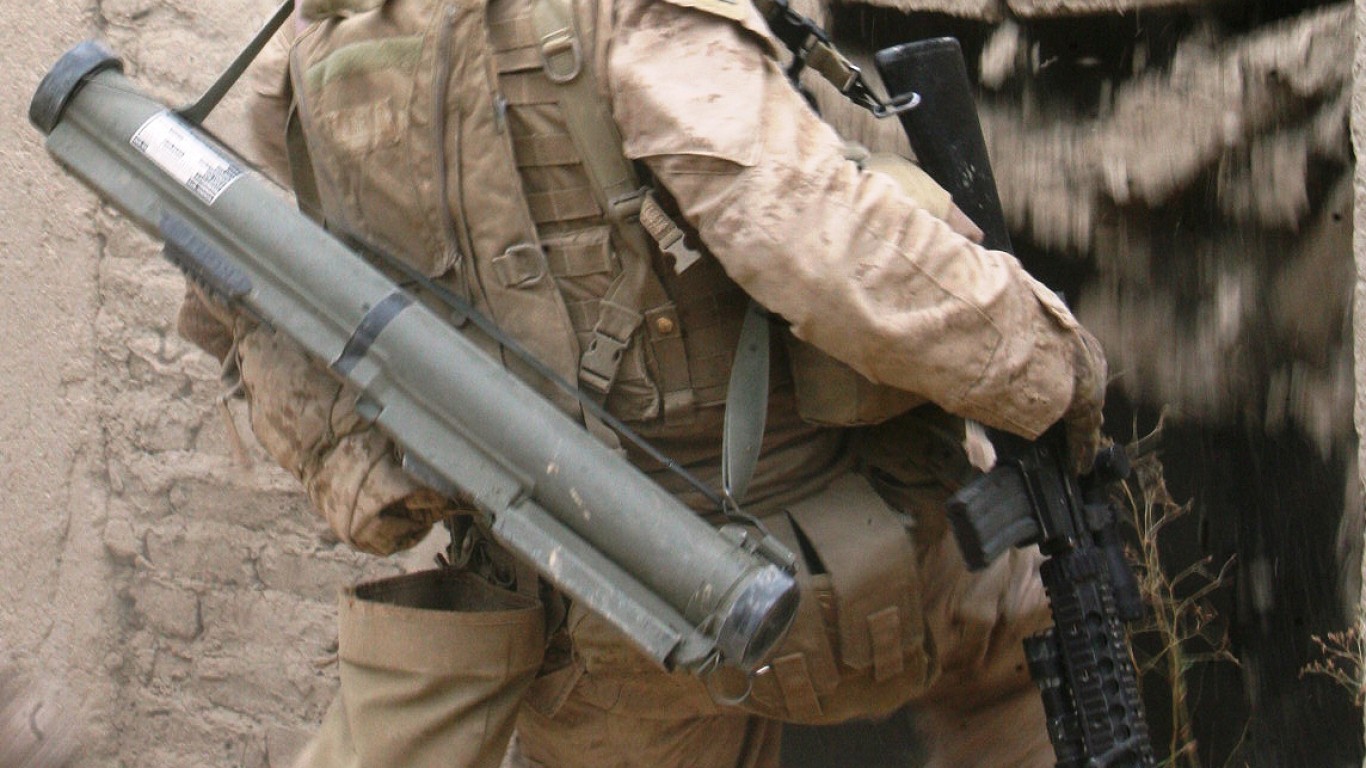
30. M72 LAW
> Year entered service: 1963
> Type: Anti-tank rocket launcher
> Maximum effective range: 1,640 ft.
> Caliber/ammunition: 66mm
[in-text-ad]
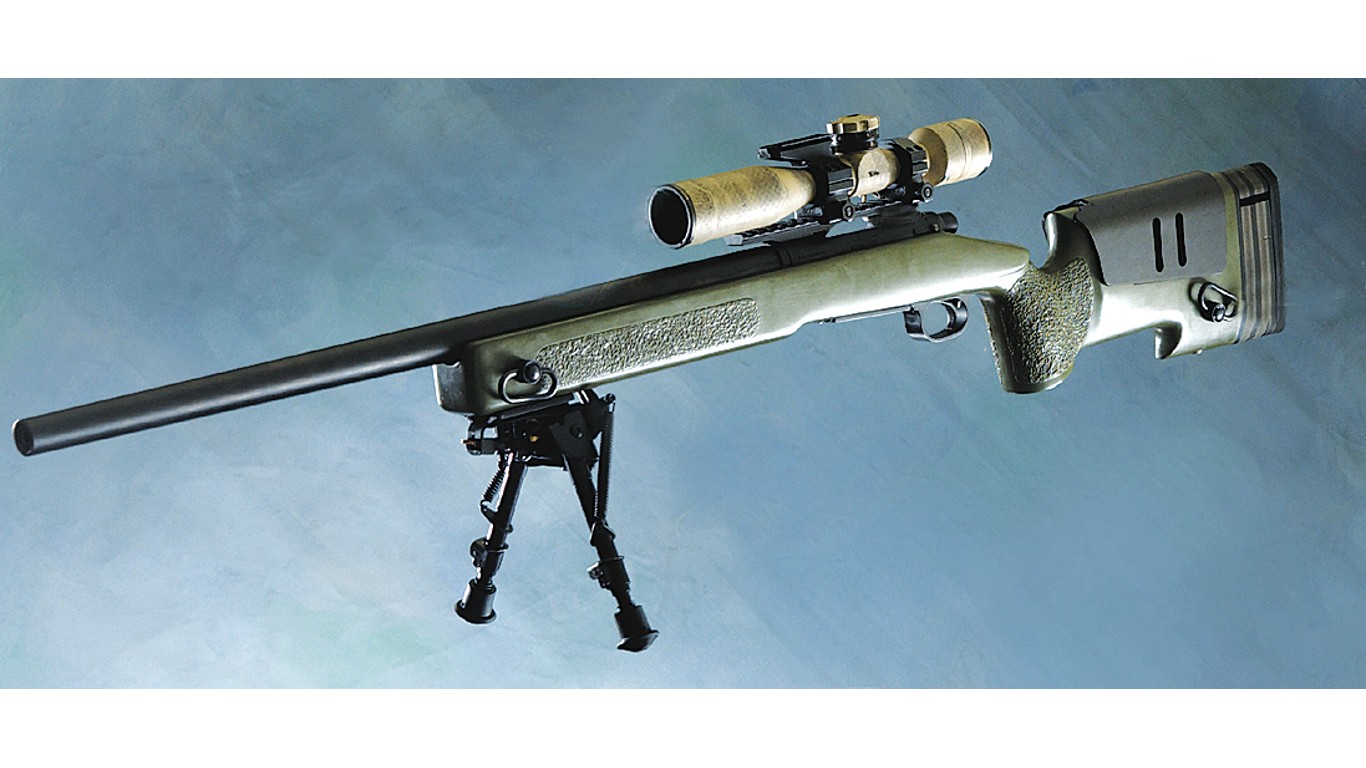
29. Remington M40
> Year entered service: 1966
> Type: Bolt-action sniper rifle
> Maximum effective range: 3,280 ft.
> Caliber/ammunition: 7.62x51mm NATO
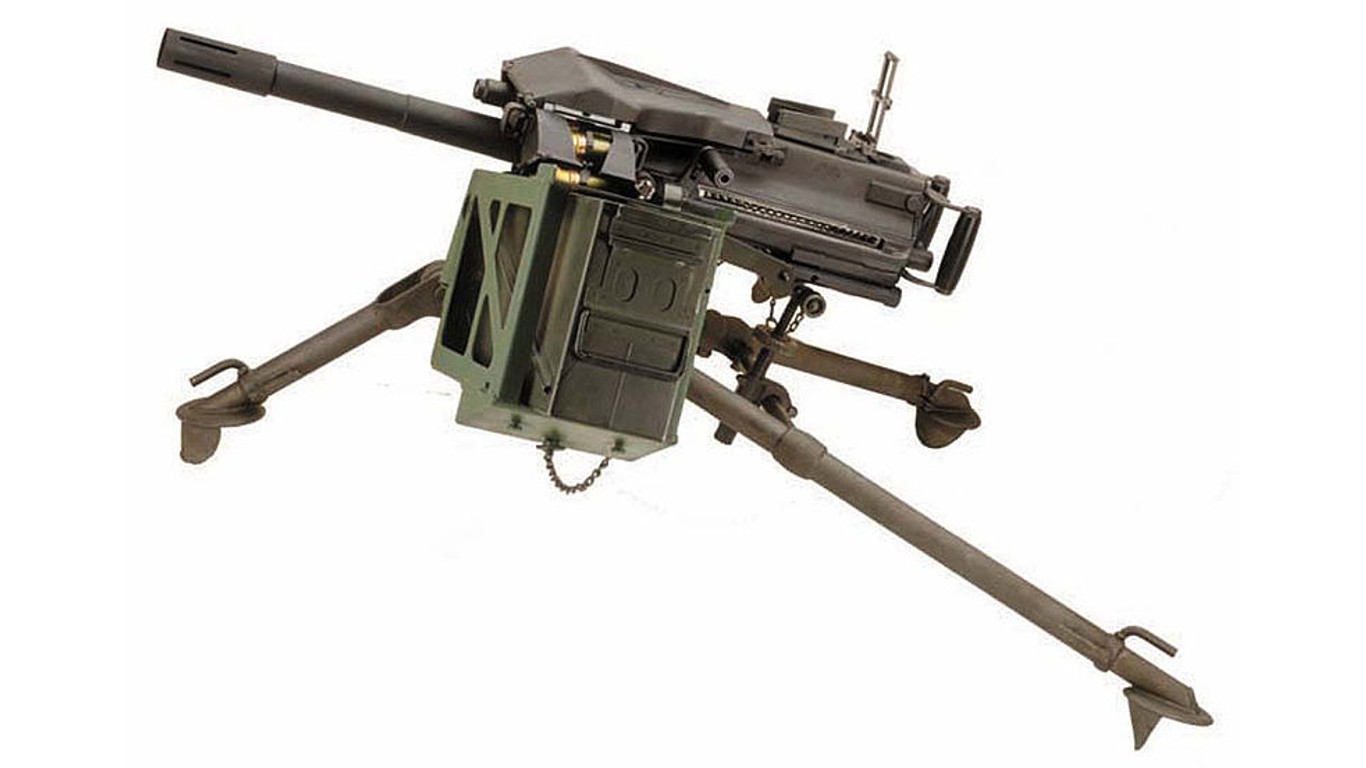
28. Saco Mk 19
> Year entered service: 1967
> Type: Automatic grenade launcher
> Maximum effective range: 4,500 ft.
> Caliber/ammunition: 40x53mm
27. Steyr GB
> Year entered service: 1974
> Type: Semi-automatic pistol
> Maximum effective range: 147 ft.
> Caliber/ammunition: 9×19 parabellum
[in-text-ad-2]
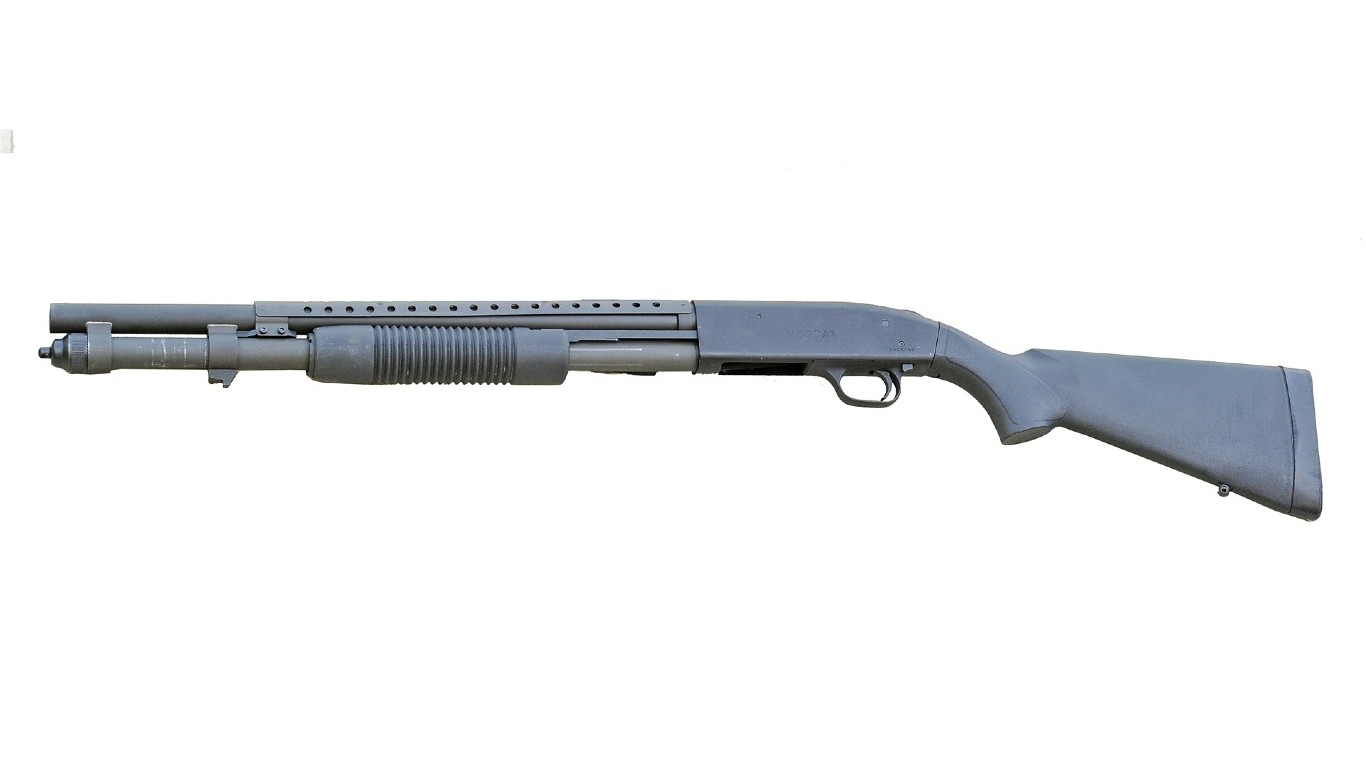
26. Mossberg Model 590
> Year entered service: 1975
> Type: Pump-action shotgun
> Maximum effective range: 130 ft.
> Caliber/ammunition: 12-gauge
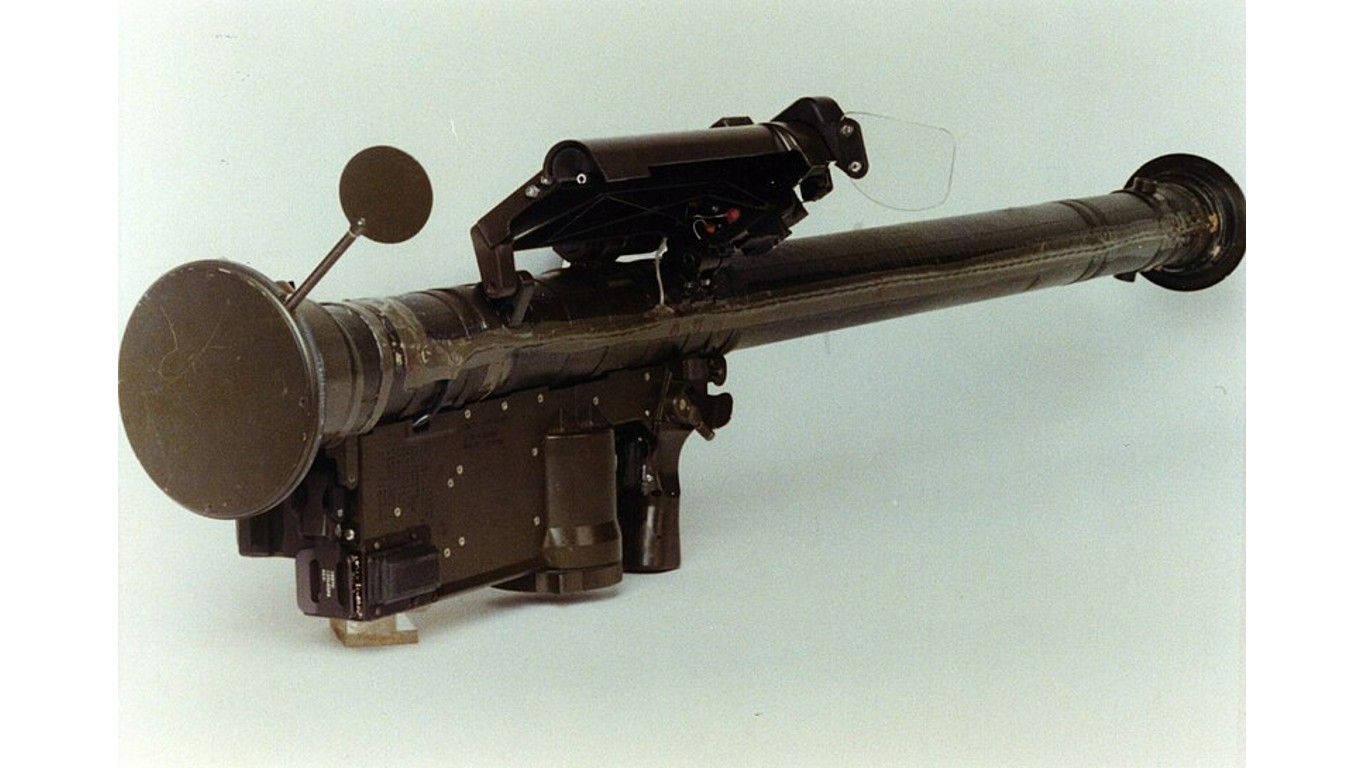
25. FIM-92 Stinger
> Year entered service: 1981
> Type: Air defense missile system
> Maximum effective range: 15,750 ft.
> Caliber/ammunition: 70mm
[in-text-ad]
24. ST Kinetics Ultimax 100
> Year entered service: 1982
> Type: Light machine gun
> Maximum effective range: 3,280 ft.
> Caliber/ammunition: 5.56x45mm NATO

23. RAI Model 300 / Model 500
> Year entered service: 1983
> Type: Bolt-action sniper rifle
> Maximum effective range: 4,265 ft.
> Caliber/ammunition: 12.7x99mm NATO, 7.62x51mm NATO
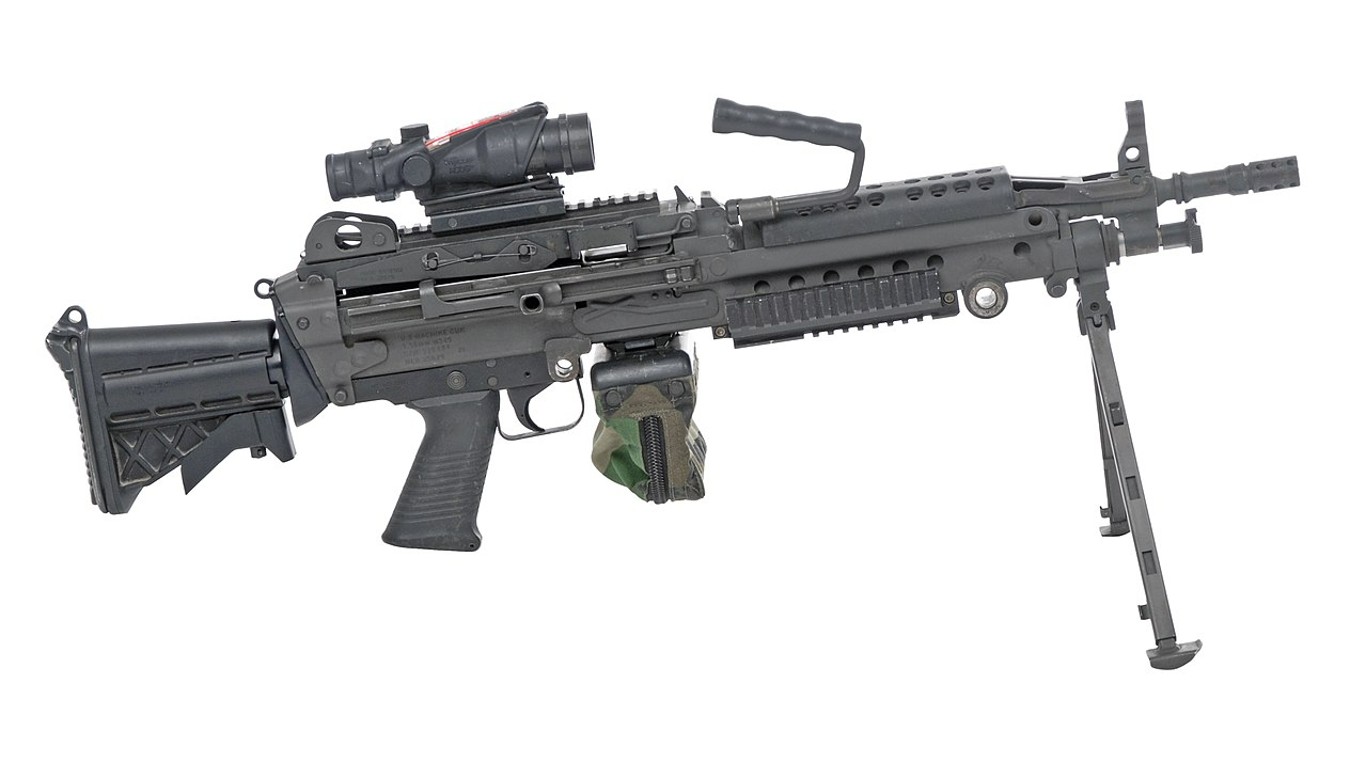
22. Fabrique Nationale M249 SAW
> Year entered service: 1984
> Type: Squad support weapon
> Maximum effective range: 2,600 ft.
> Caliber/ammunition: 5.56x45mm NATO, 7.62x51mm NATO
[in-text-ad-2]
21. Colt M45 MEU
> Year entered service: 1986
> Type: Semi-automatic pistol
> Maximum effective range: 165 ft.
> Caliber/ammunition: .45 ACP
20. Saco M60E3
> Year entered service: 1986
> Type: Light machine gun
> Maximum effective range: 3,600 ft.
> Caliber/ammunition: 7.62x51mm NATO
[in-text-ad]
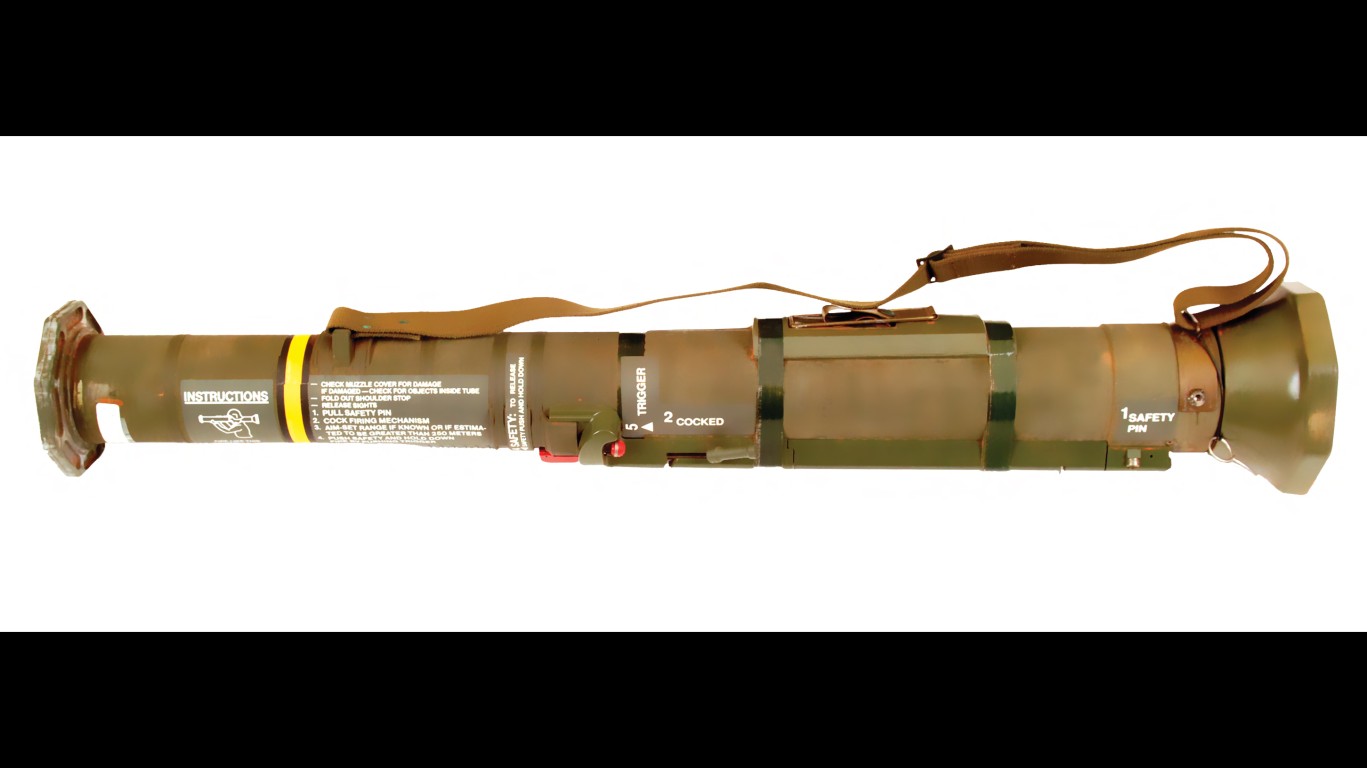
19. M136 Light Anti-Armor Weapon (AT4)
> Year entered service: 1987
> Type: Anti-armor rocket launcher
> Maximum effective range: 985 ft.
> Caliber/ammunition: 84mm
18. Remington M24 SWS
> Year entered service: 1987
> Type: Bolt-action sniper rifle
> Maximum effective range: 2,624 ft.
> Caliber/ammunition: 7.62x51mm NATO
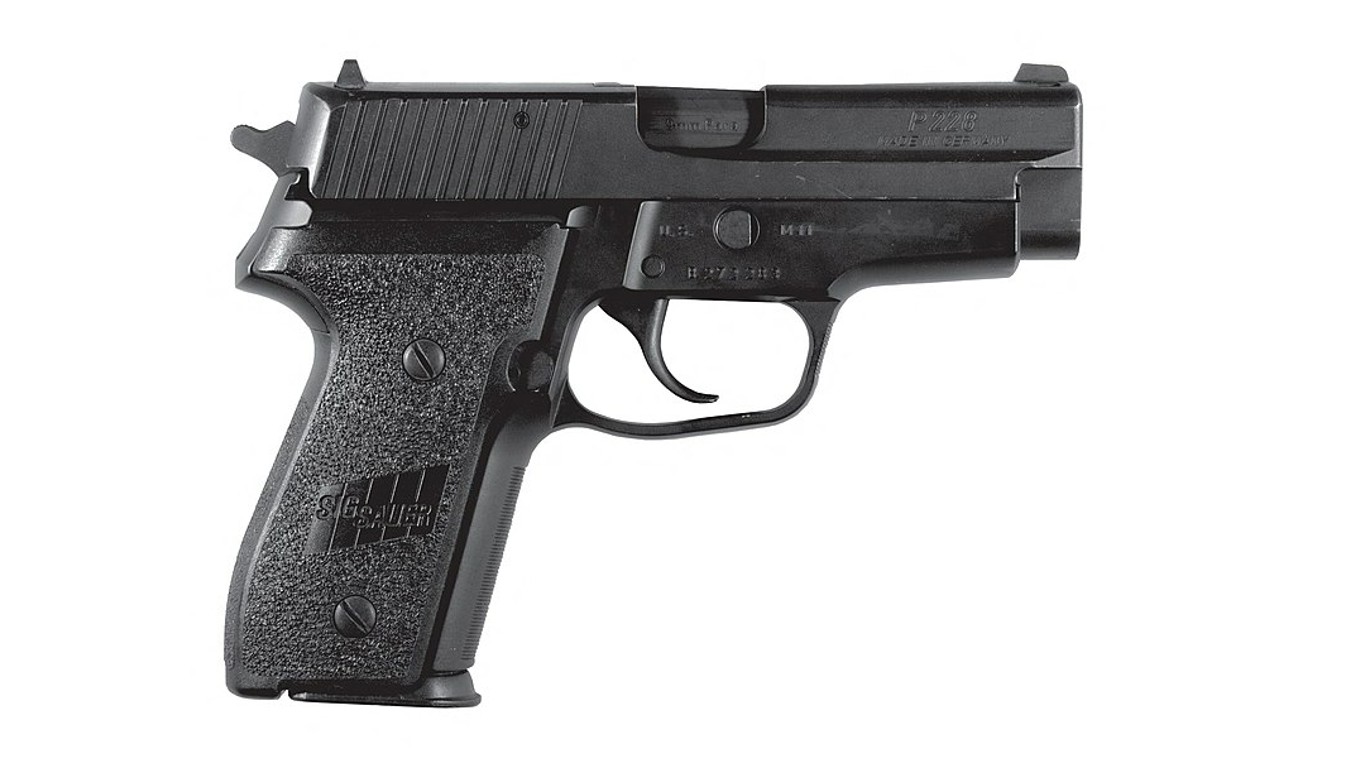
17. SIG-Sauer P228
> Year entered service: 1988
> Type: Semi-automatic pistol
> Maximum effective range: 165 ft.
> Caliber/ammunition: 9x19mm parabellum
[in-text-ad-2]
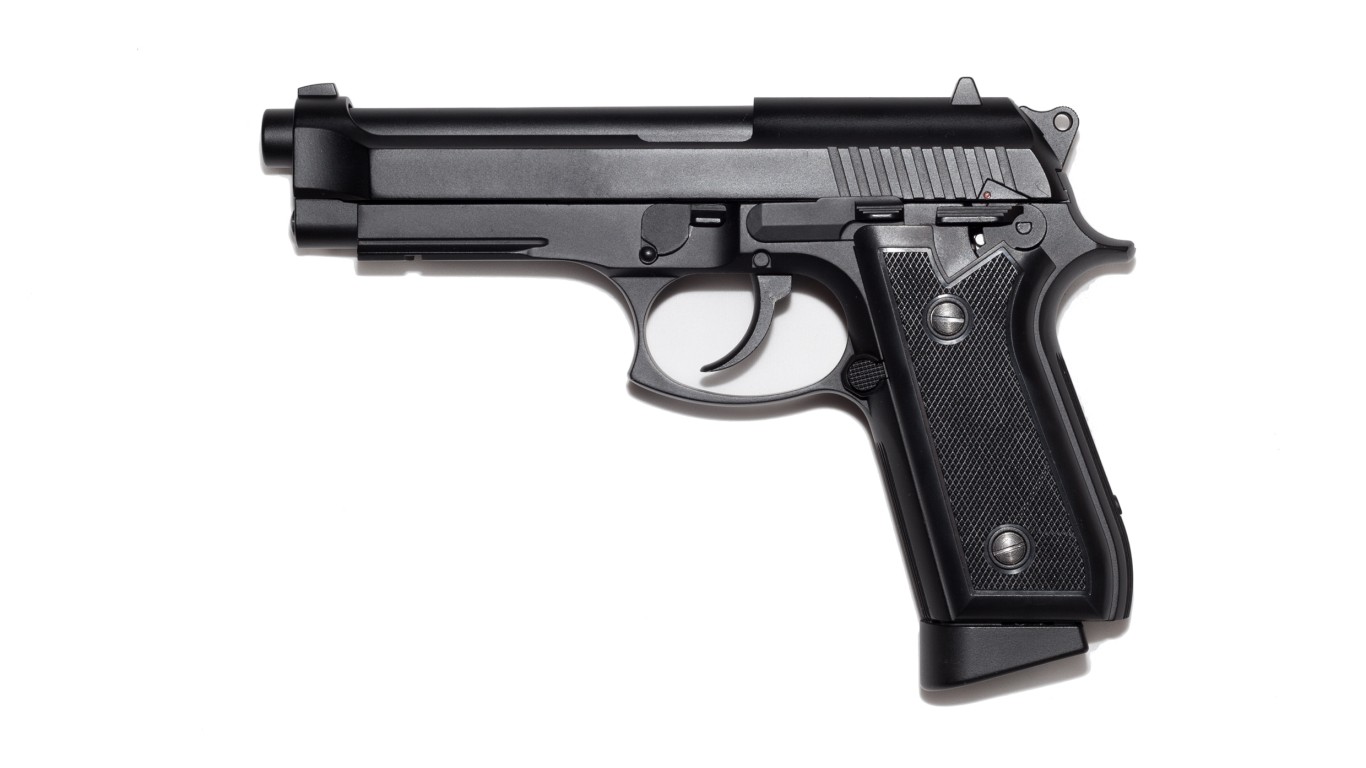
16. Beretta M9
> Year entered service: 1990
> Type: Semi-automatic pistol
> Maximum effective range: 164 ft.
> Caliber/ammunition: 9x19mm parabellum
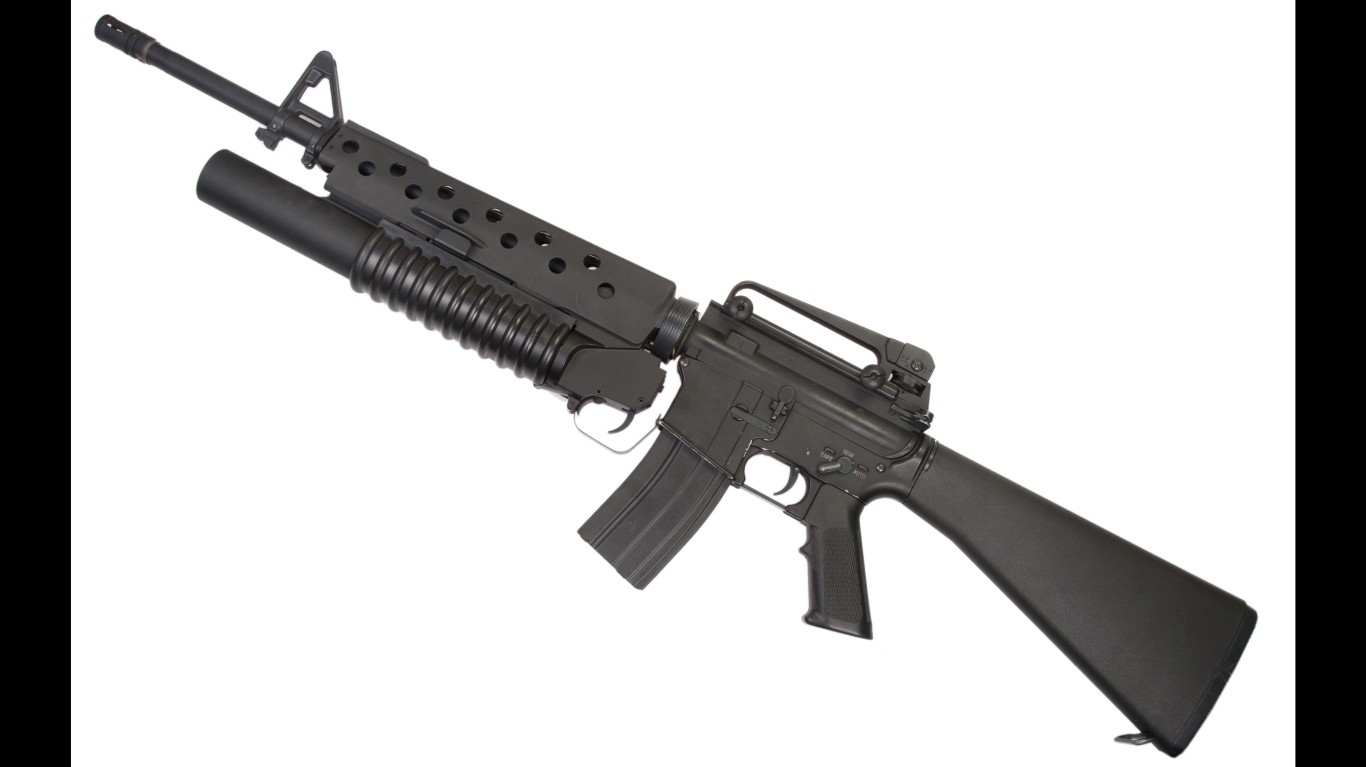
15. Colt M16A4
> Year entered service: 1990
> Type: Assault rifle
> Maximum effective range: 1,968 ft.
> Caliber/ammunition: 5.56x45mm NATO
[in-text-ad]
14. Stoner SR-25
> Year entered service: 1990
> Type: Designated marksman rifle
> Maximum effective range: 2,625 ft.
> Caliber/ammunition: 7.62x51mm NATO
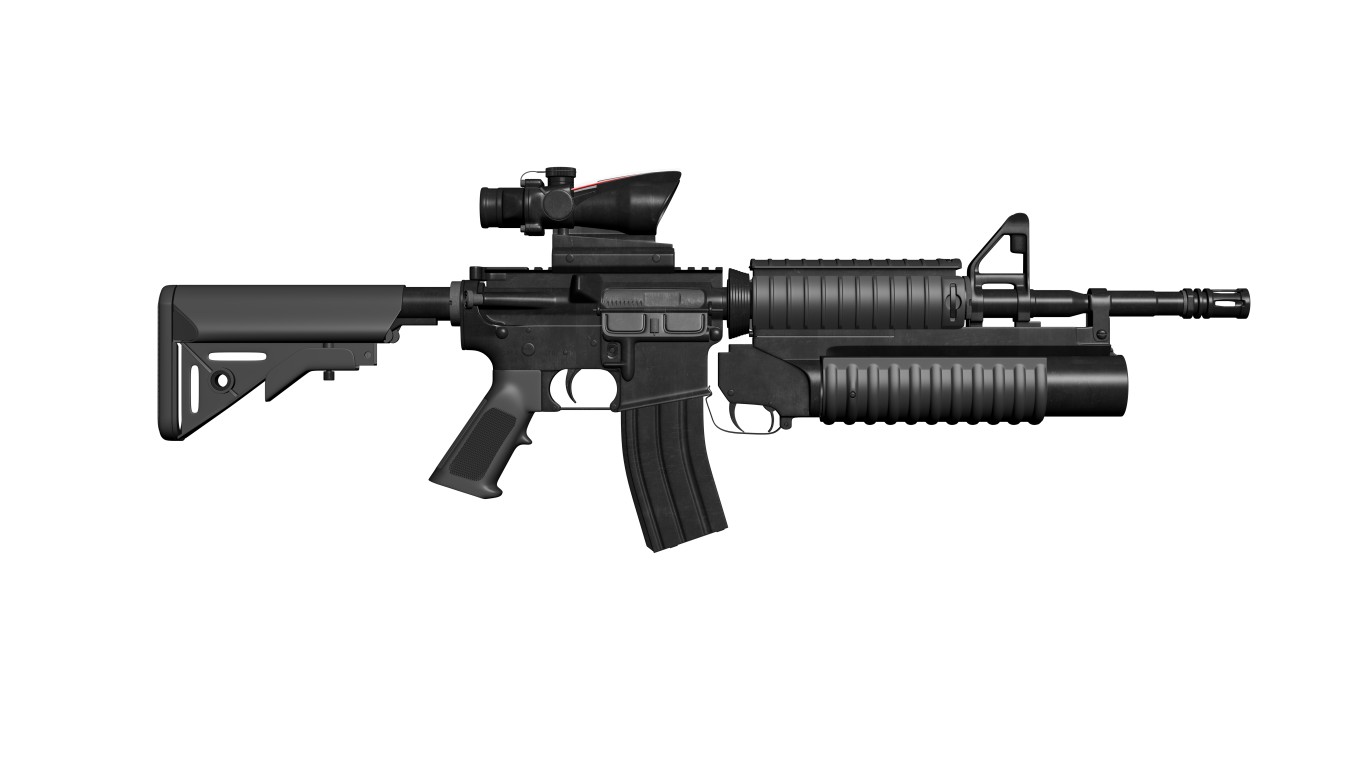
13. Colt M4
> Year entered service: 1994
> Type: Assault carbine
> Maximum effective range: 1,640 ft.
> Caliber/ammunition: 5.56x45mm NATO
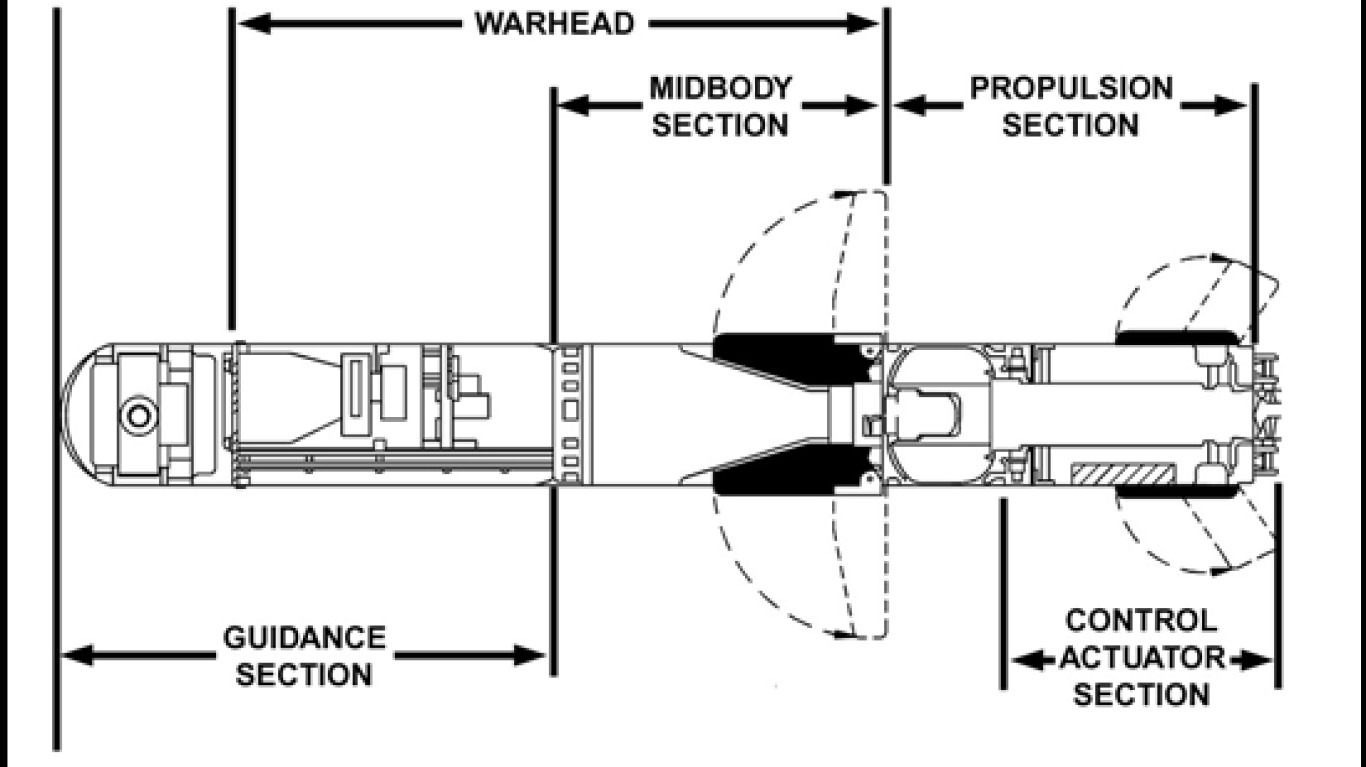
12. FGM-148 Javelin
> Year entered service: 1996
> Type: Anti-tank guided missile launcher
> Maximum effective range: 8,202 ft.
> Caliber/ammunition: 127mm
[in-text-ad-2]
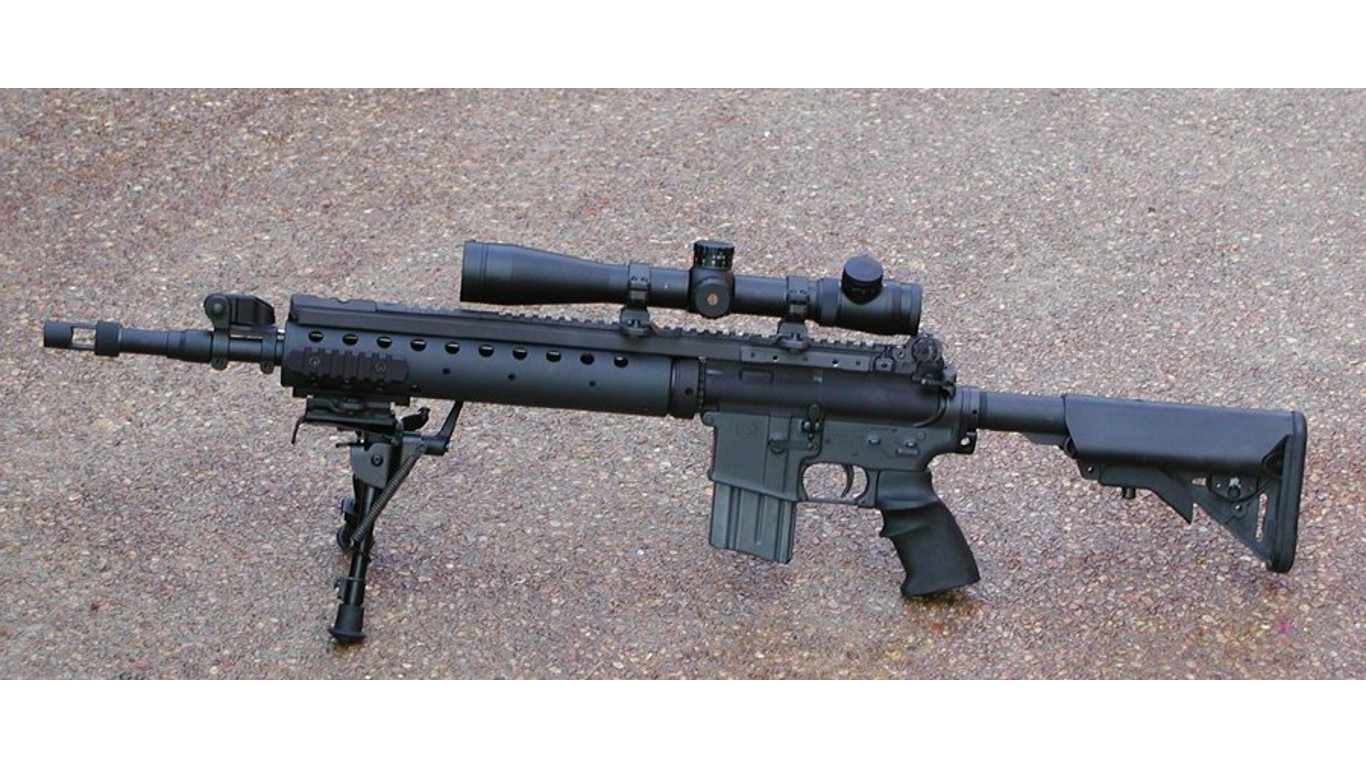
11. Navy Mark 12 Special Purpose Rifle
> Year entered service: 2002
> Type: Designated marksman rifle
> Maximum effective range: 1,800 ft.
> Caliber/ammunition: 5.56x45mm NATO
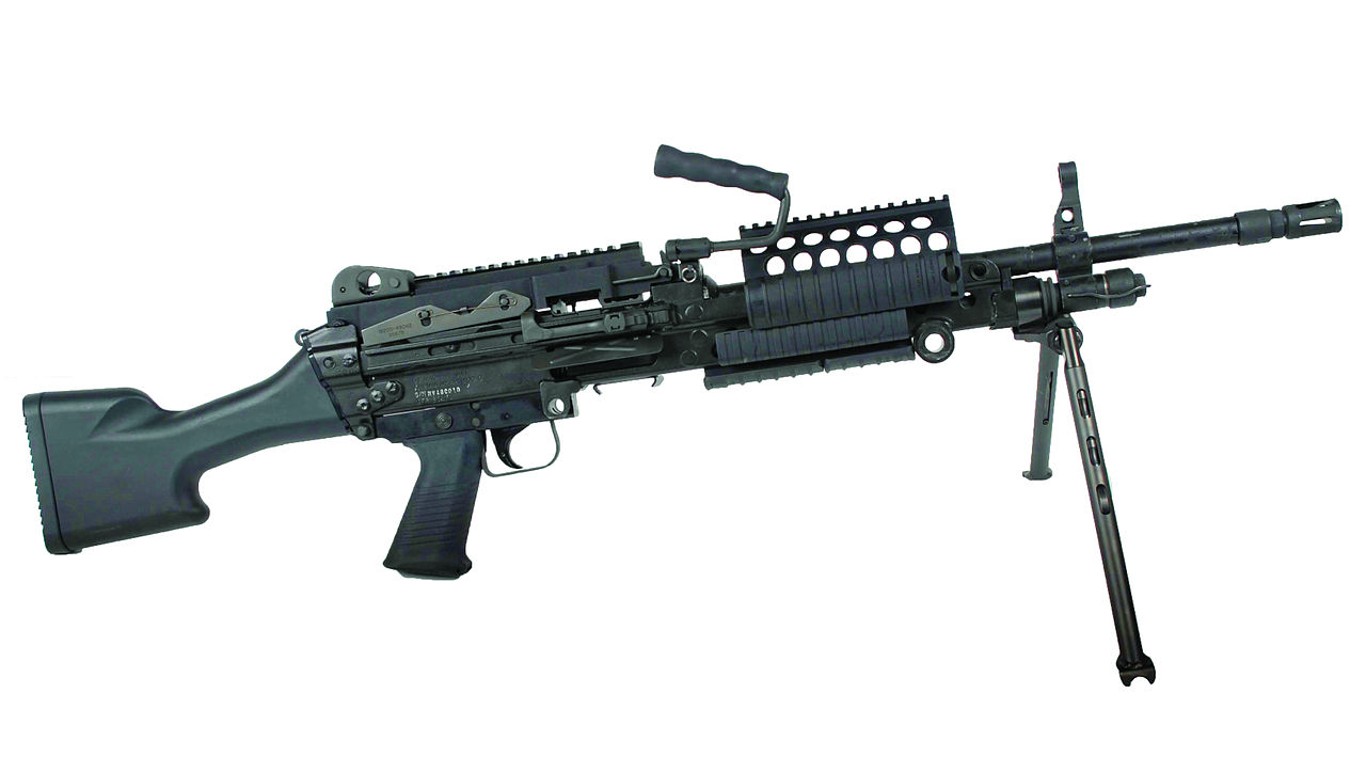
10. Fabrique Nationale Mk 48 LWMG
> Year entered service: 2003
> Type: Lightweight machine gun
> Maximum effective range: 2,624 ft.
> Caliber/ammunition: 7.62x51mm NATO
[in-text-ad]
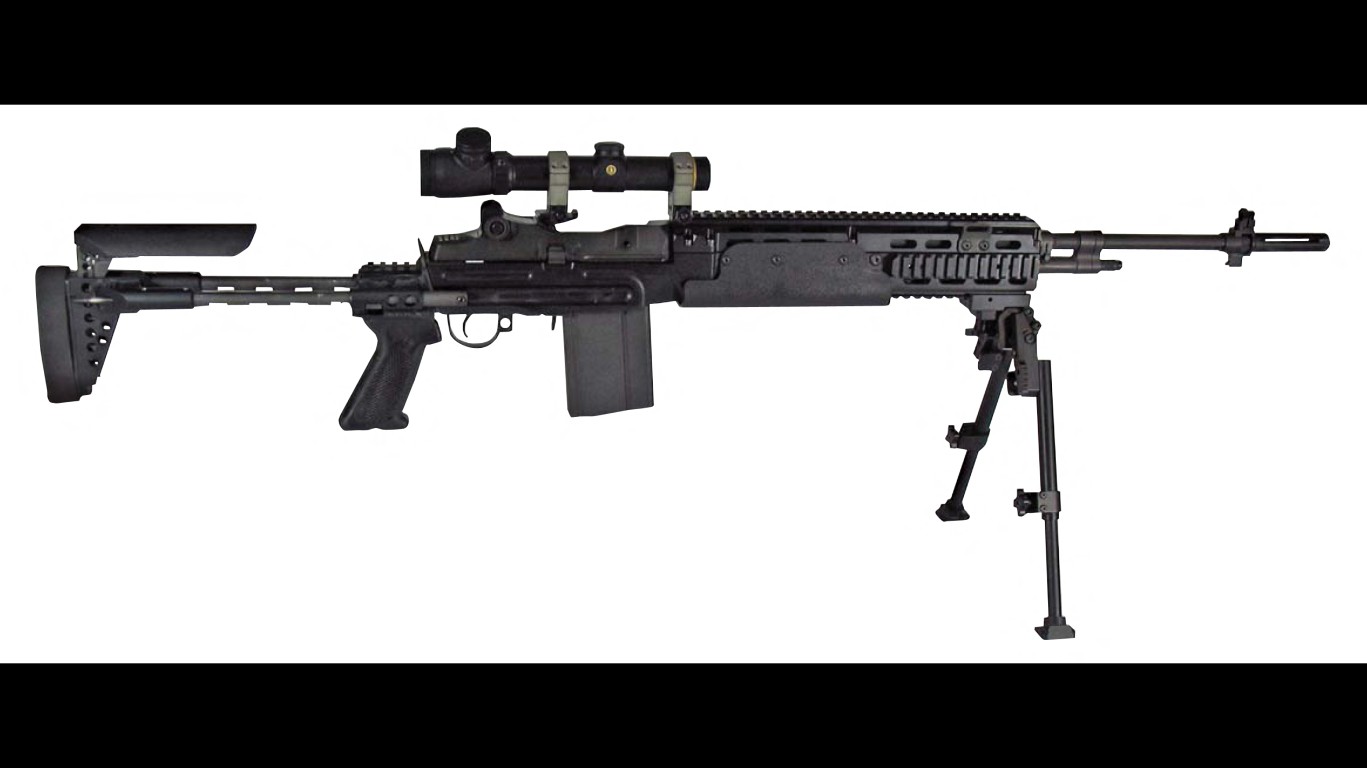
9. Mk 14 Mod 0 EBR
> Year entered service: 2004
> Type: Designated marksman rifle
> Maximum effective range: 1,500 ft.
> Caliber/ammunition: 7.62x51mm NATO
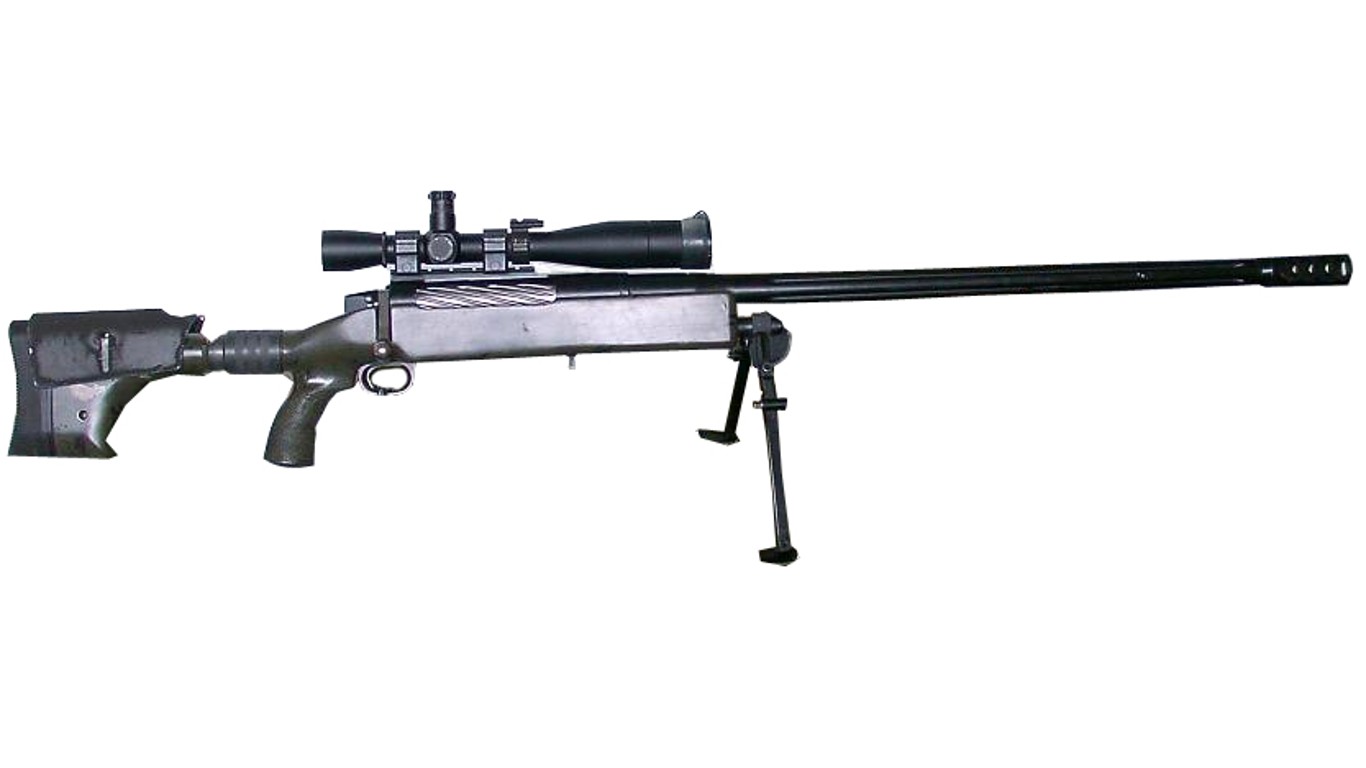
8. McMillan TAC-338
> Year entered service: 2005
> Type: Sniper rifle
> Maximum effective range: 5,250 ft.
> Caliber/ammunition: .338 Lapua Magnum, .338 Norma Magnum
7. General Dynamics Mk 47 Striker AGL
> Year entered service: 2006
> Type: Automatic grenade launcher
> Maximum effective range: 5,600 ft.
> Caliber/ammunition: 40x53mm
[in-text-ad-2]
6. Heckler & Koch HK G28
> Year entered service: 2006
> Type: Designated marksman rifle
> Maximum effective range: 2,000 ft.
> Caliber/ammunition: 7.62x51mm NATO
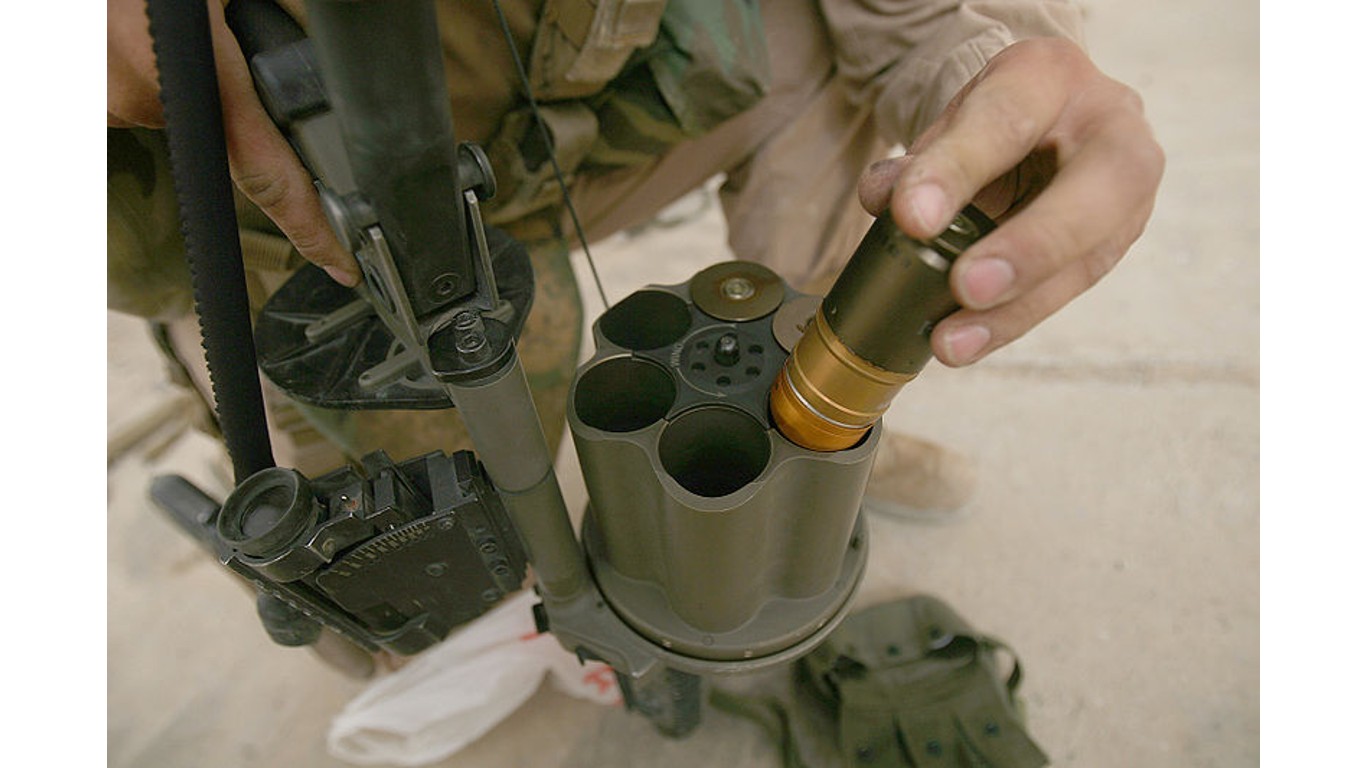
5. M32 MGL
> Year entered service: 2006
> Type: Six-shot grenade launcher
> Maximum effective range: 1,315 ft.
> Caliber/ammunition: 40x46mm grenade
[in-text-ad]
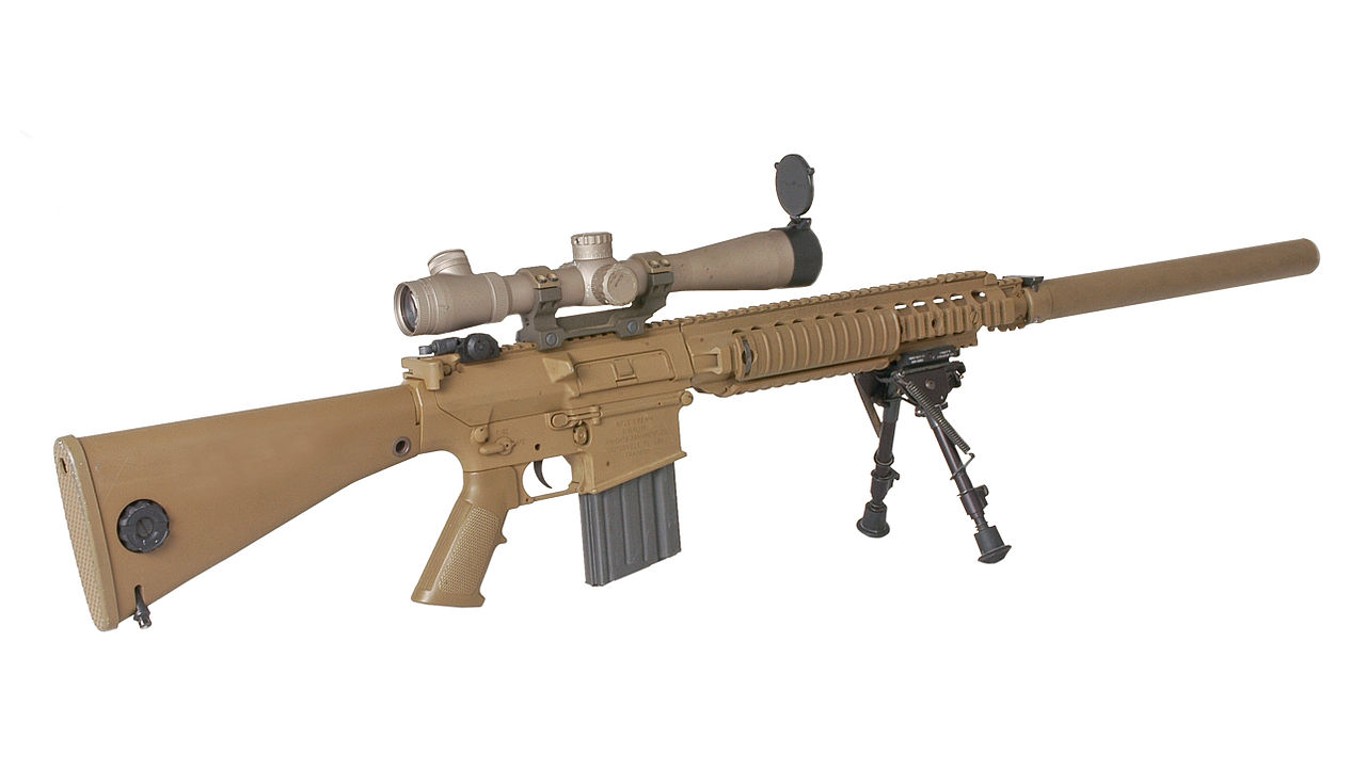
4. M110 SASS
> Year entered service: 2007
> Type: Designated marksman rifle
> Maximum effective range: 2,624 ft.
> Caliber/ammunition: 7.62x51mm NATO
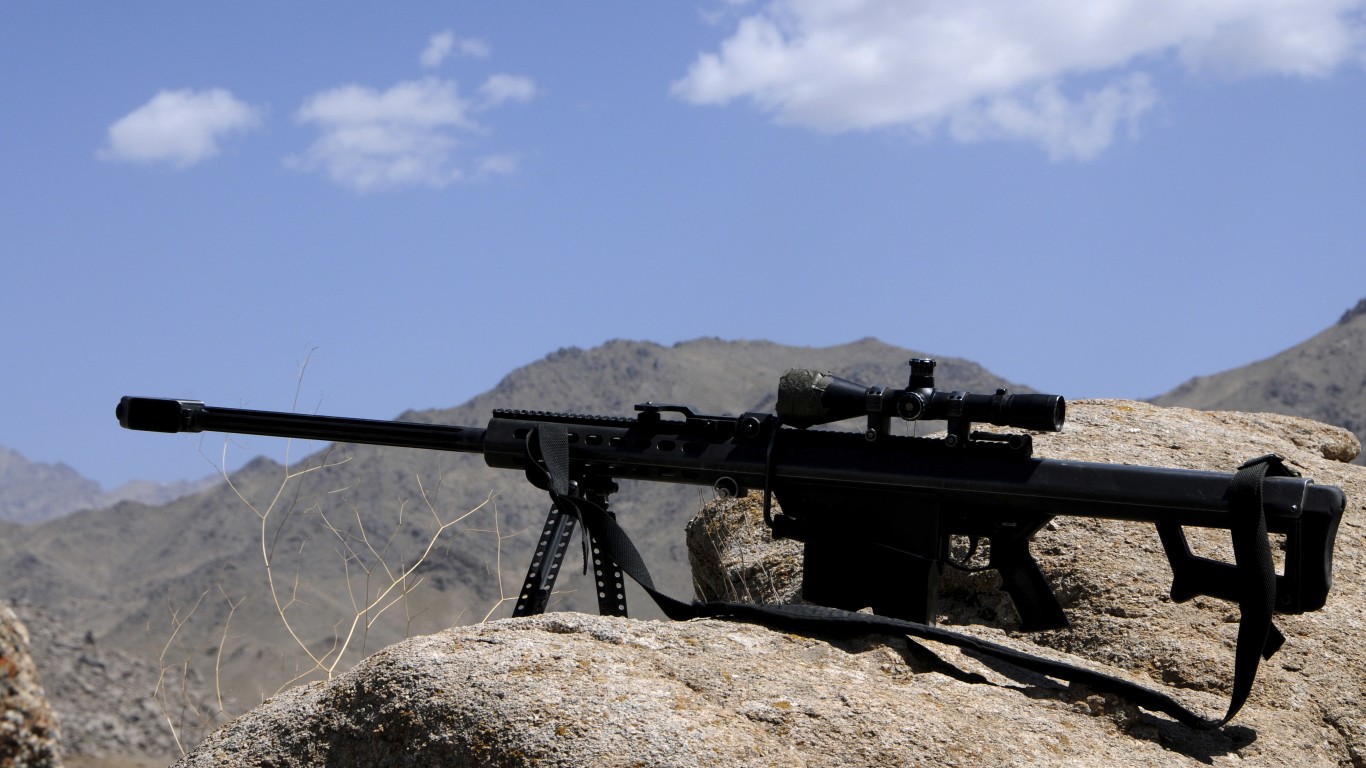
3. Barrett M107
> Year entered service: 2008
> Type: Anti-personnel sniper rifle
> Maximum effective range: 1,850 ft.
> Caliber/ammunition: .50 BMG (12.7x99mm NATO)
2. AirTronic PSRL-1
> Year entered service: 2009
> Type: Anti-personnel shoulder-fired rocket launcher
> Maximum effective range: 2,625 ft.
> Caliber/ammunition: 40mm Rocket
[in-text-ad-2]
1. Fabrique Nationale FN SCAR (Mk 16 / Mk 17)
> Year entered service: 2009
> Type: Automatic assault rifle
> Maximum effective range: 1,640 ft.
> Caliber/ammunition: 5.56x45mm NATO, 7.62x51mm NATO
Thank you for reading! Have some feedback for us?
Contact the 24/7 Wall St. editorial team.
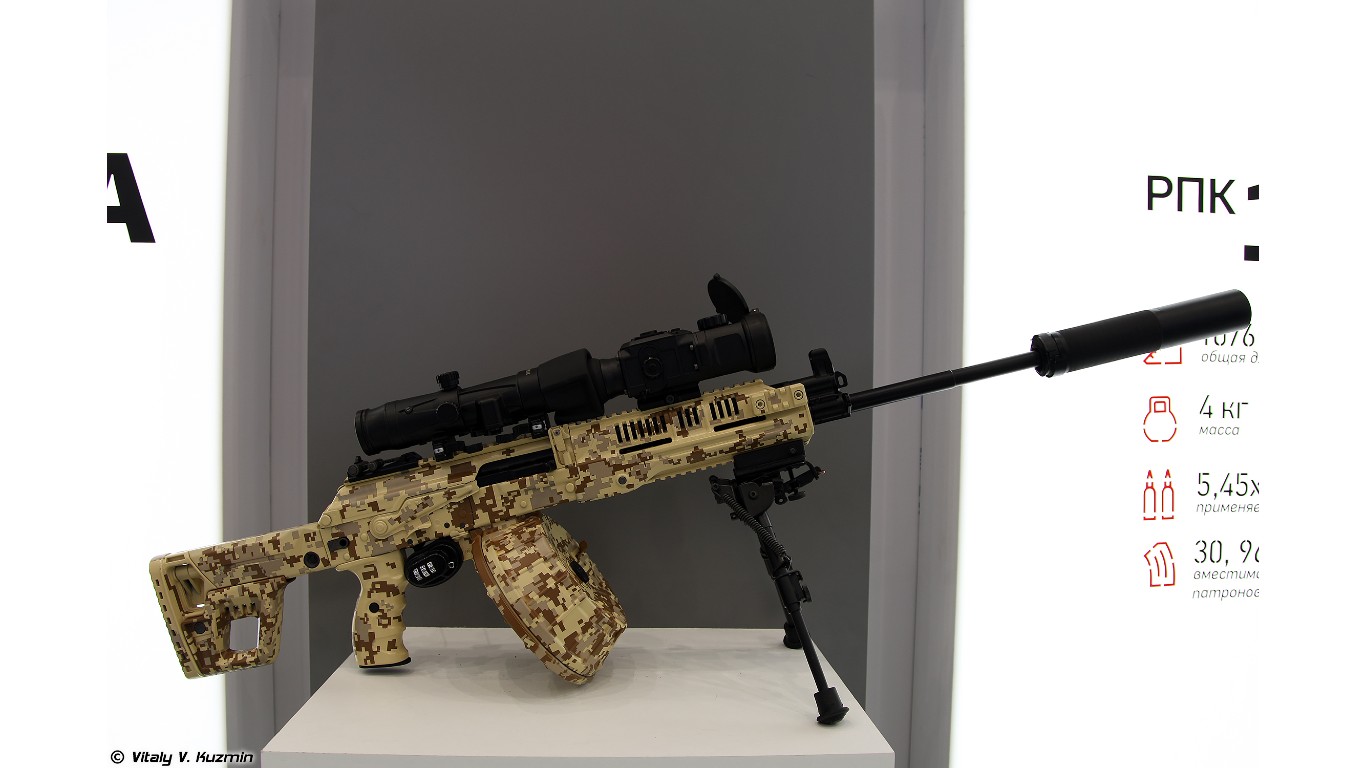 24/7 Wall St.
24/7 Wall St.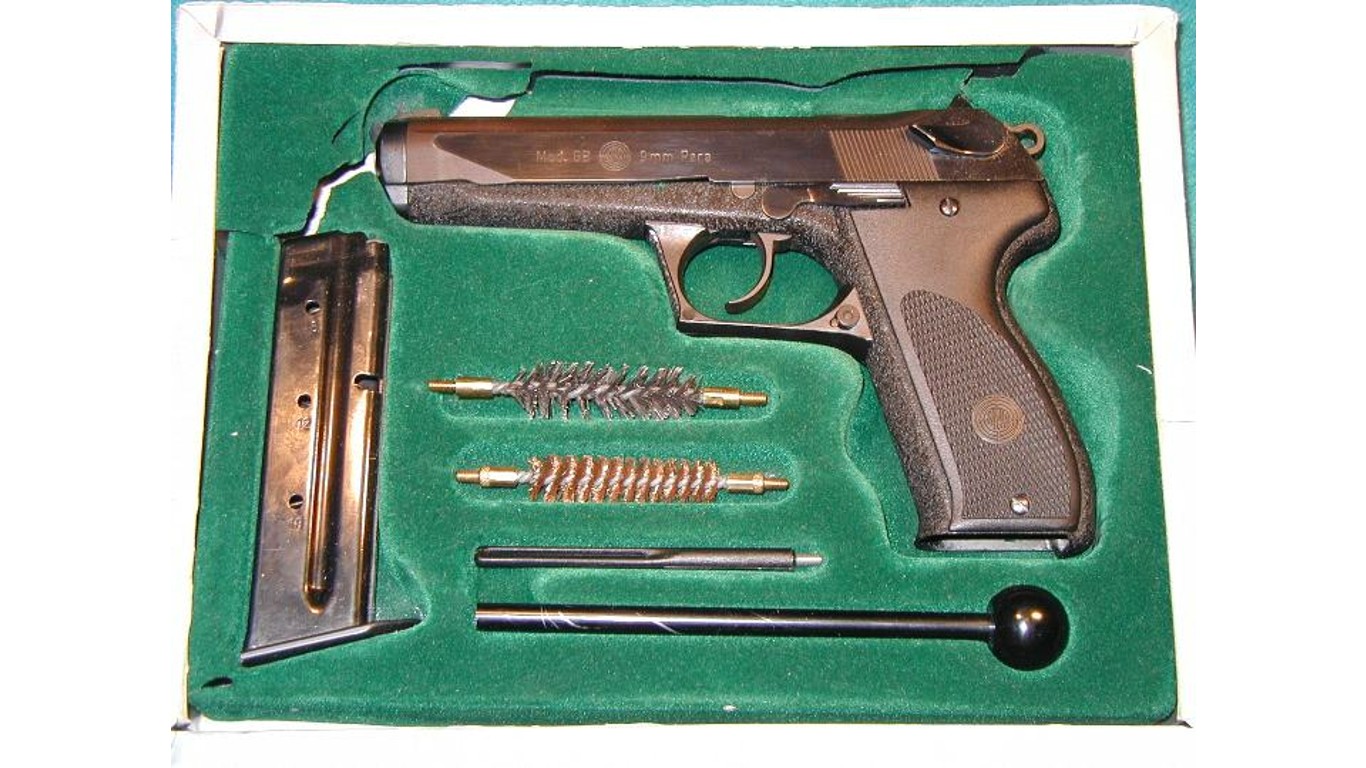
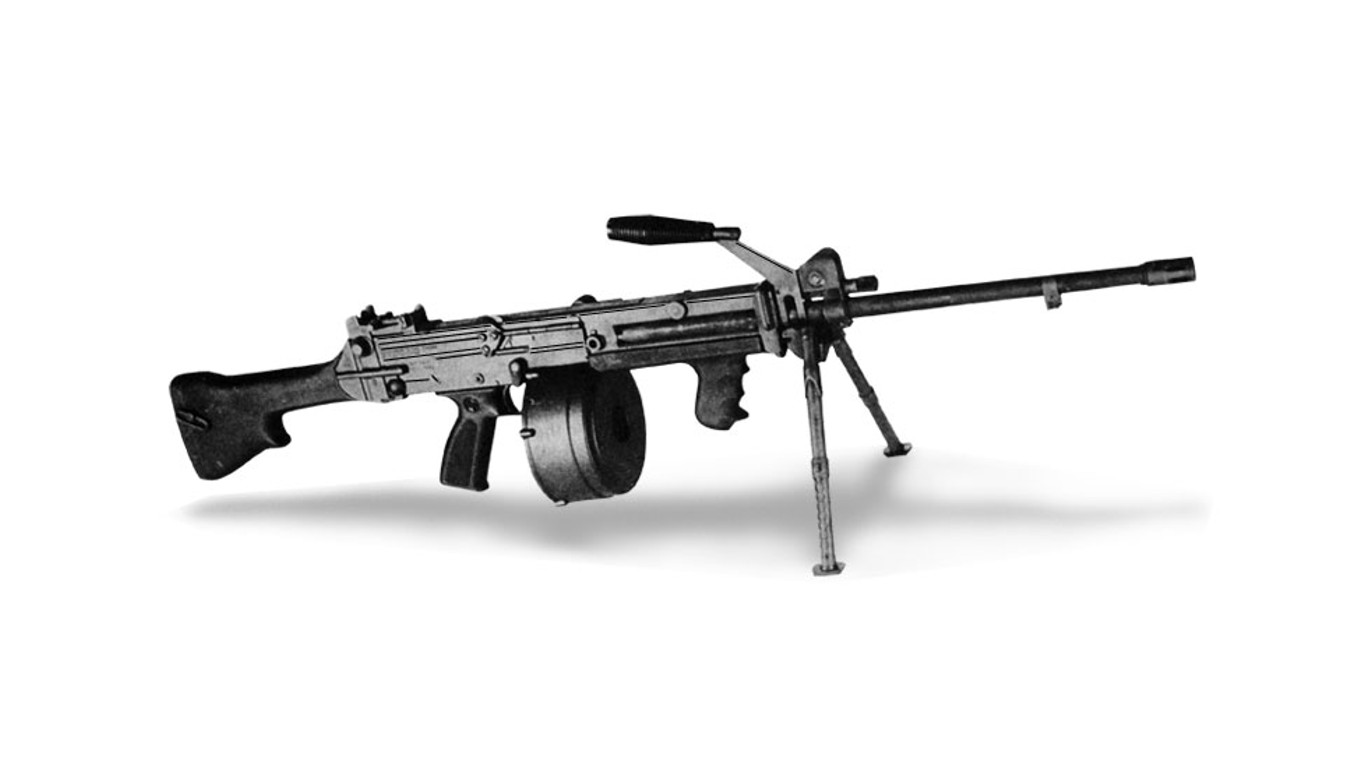
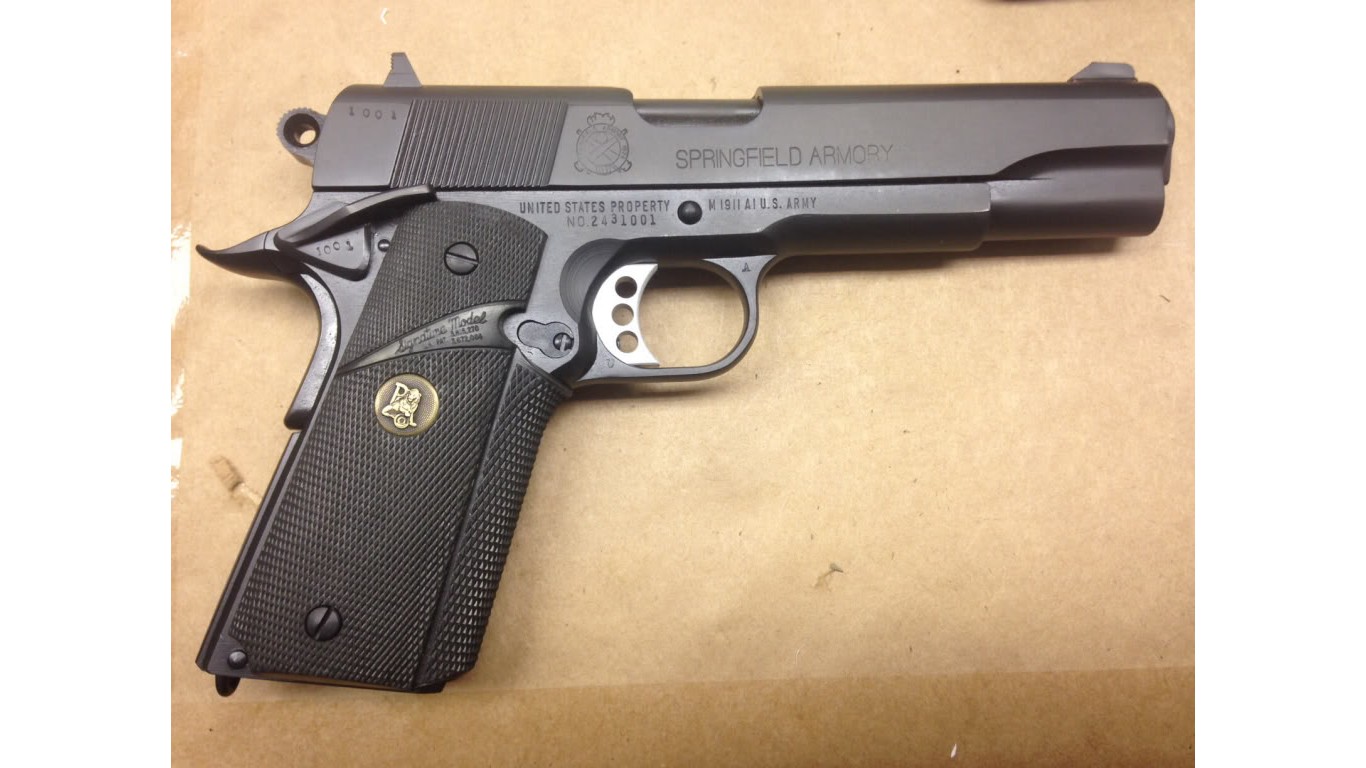
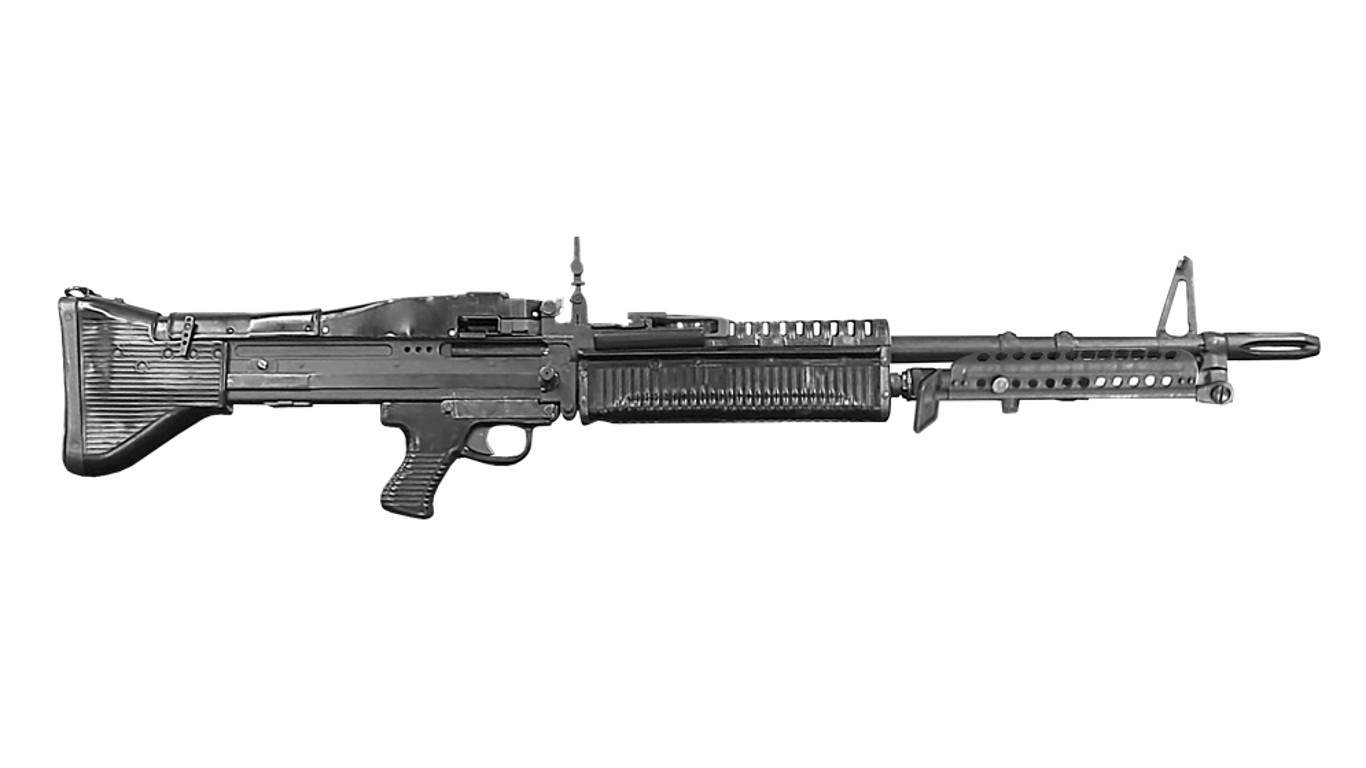
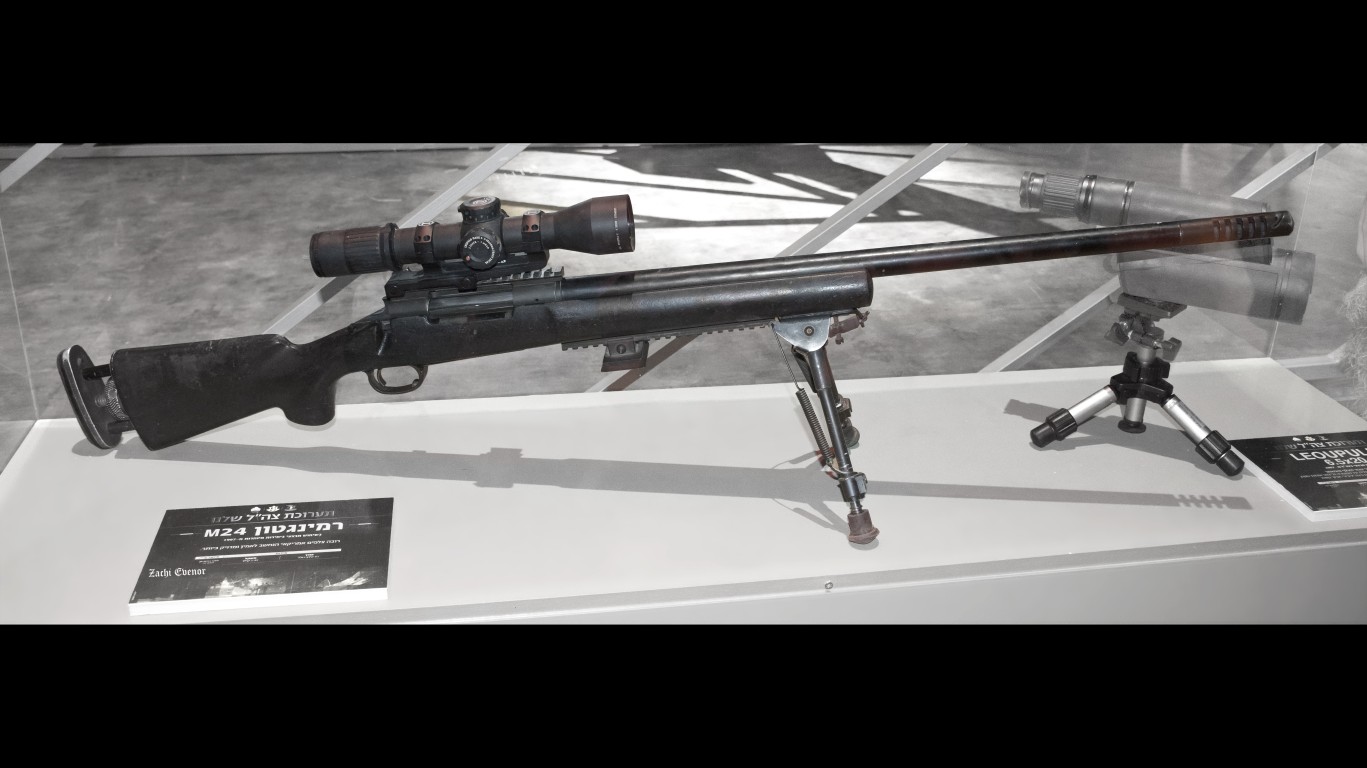
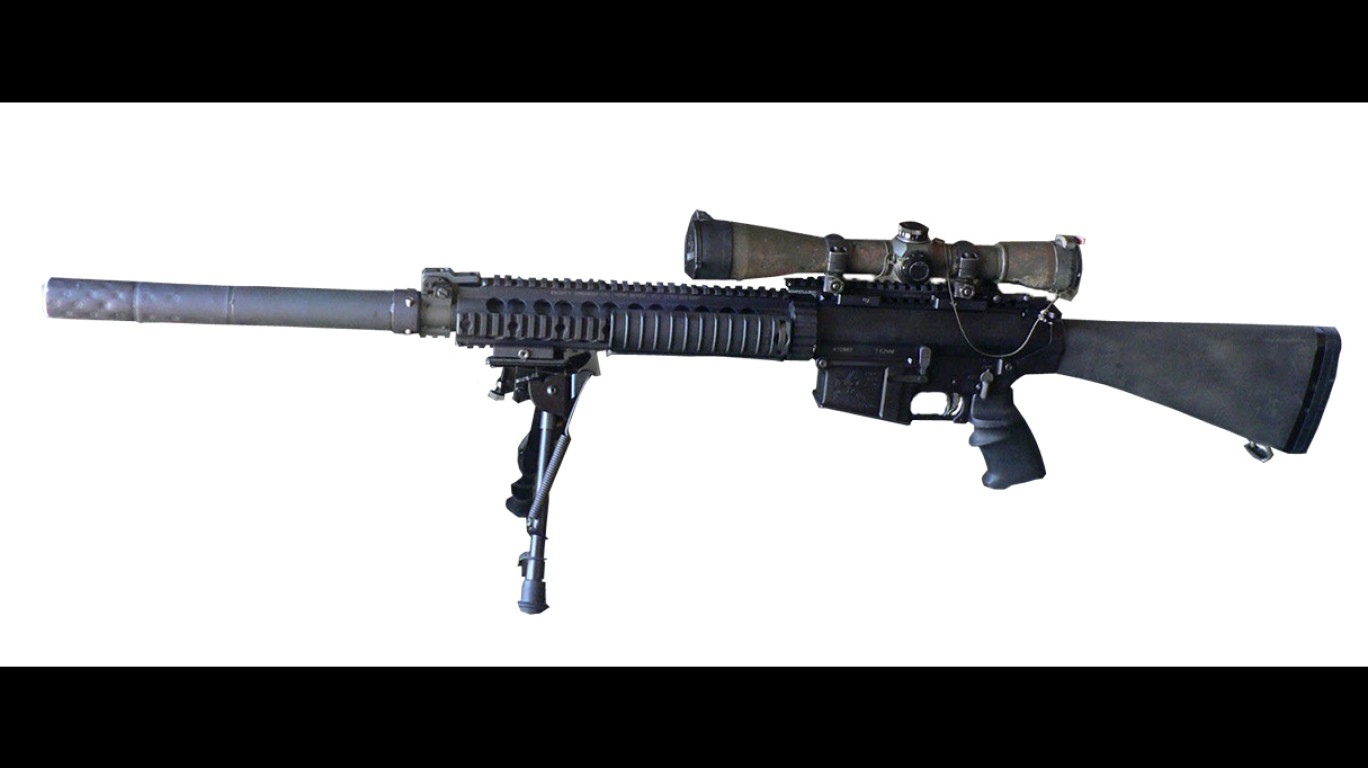
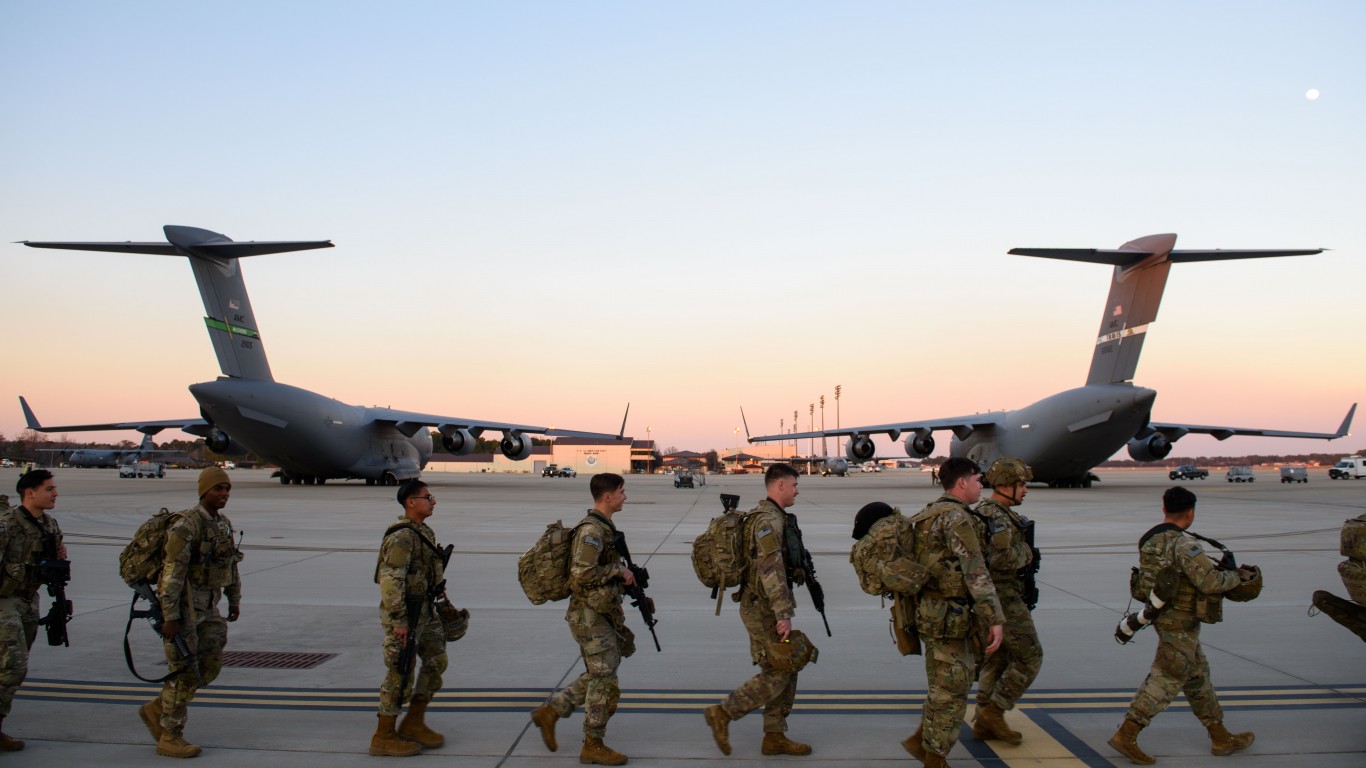 24/7 Wall St.
24/7 Wall St.